#[should really think about following. very fantastic read and portrayal.]
Explore tagged Tumblr posts
Text
Solitaire Book Review
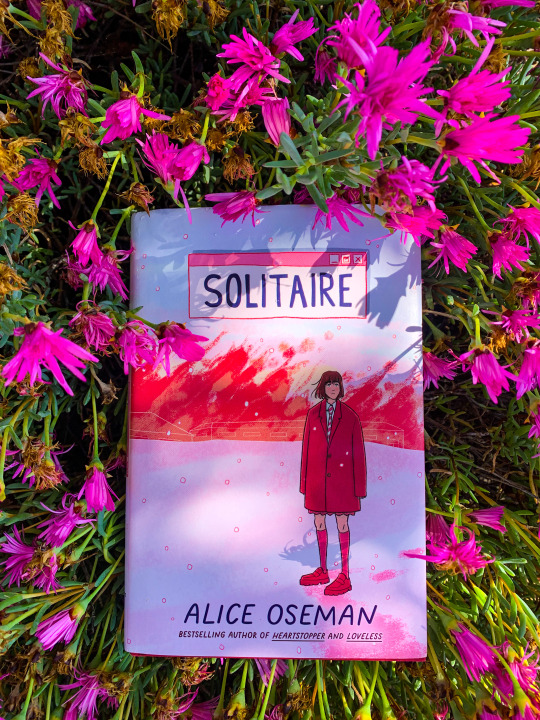
Solitaire Book Review by Alice Oseman
I’ve loved every book I’ve ever read by Alice Oseman. Granted, that’s only been Loveless and Radio Silence, but both of those books were fantastic. I never read Oseman’s infinitely popular graphic novel series Hearstopper, but I did watch the first season on Netflix and really enjoyed that too.
So going into Oseman’s book Solitaire, had me filled with high expectations and eager anticipation. Unfortunately those expectations and excitement dwindled to something I’ve never experienced with Oseman before: disappointment.
Apparently, Alice Oseman wrote Solitaire when she was seventeen-years-old. I’m a little confused on the history, but I’m assuming she wrote Heartstopper first and then Solitaire as a follow-up side novel.
Again, I didn’t look into the details. All I know is that she wrote this book twelve years ago, that it was her debut novel, and that it shows.
Instead of focusing on Nick and Charlie, Solitaire focuses on Charlie’s sister, Victoria Spring. The best way I can describe Tori is that she is Wednesday Addams embodied, which is ironic seeing as Tori dresses up like Wednesday for Halloween in the novel (very on the nose, Alice).
However, people seem to like Wednesday Addams’ despondent and cynical attitude (I don’t get it, for the record). I abhor Tori Spring. Maybe abhor is too strong of a word, but she was not a likable narrator. She’s pessimistic, apathetic, rude, judgmental, callous, and mean.
Her whole schtick is that she thinks other people are “fake” and dislikes that people don’t act in the world, allowing the world to happen to them and only being bystanders to violence, hate, and toxicity.
And yet…Tori does nothing? The entire novel? The person she supposedly hates the most describes the person Tori is herself.
Which I guess is fitting because Tori seems to despise herself more than anyone. You think as a reader that Tori will grow out of her depression by the end of the novel and come to some sort of understanding or epiphany.
Spoiler alert: she doesn't.
If anything, she spirals worse and worse, becoming increasingly sleep-deprived, paranoid, despondent, and obsessive. I get that Oseman wanted a more realistic portrayal of mental health perhaps, or maybe she didn’t think it was realistic for Tori to have a happy ending.
However, she didn't really get any ending at all.
Before I get to the conclusion of the story, I guess I should actually explain what the novel is about.
Tori’s childhood best friend, Lucas, suddenly reappears in her life years later. Around the same time, mysterious pranks start occurring around Higgs, Tori’s school.
Harmless at first, the pranks pulled by the anonymous group Solitaire continuously grow in popularity and in danger, eventually leading to a boy getting beat up, Tori getting hurt by a firework exploding near her, and then, at the end of the novel, Higgs burning down.
You might ask: why did the school burn down?
I wish I could tell you, but I have no idea.
Apparently, Lucas was in charge of Solitaire and was doing it all to impress Tori and to bring some “joy” back into her life before the jokes spiraled out of control.
However, Lucas comes to understand that Tori is no longer the girl he knew back in primary school and that she’s drastically changed. He did it because he was in “love” with her, but then admits at the end that he was more in love with the idea of her.
Okayyyyyy.
Then, for some inexplicable reason, other people are at Higgs at 5am, including one Michael Holden, Tori’s new fiend and resident “weirdo.”
The ending of the novel then churns out nonsense after nonsense. Tori and her ex-best friend Becky confront Solitaire and persuade them to not burn down the school.
But then, inexplicably, Tori walks out of the room and a classroom is on fire. How? Why? I don’t know.
I’m unsure if the insinuation is that Michael did it or if Lucas or Solitaire still managed to do it, but all I know is that I was confused.
Instead of getting better it gets decidedly worse.
Somehow, Tori thinks she’s going to put out a raging inferno with a single fire extinguisher and chooses now to act instead of evacating a burning building, is lead to believe that Michael is dead from the fire, and then decides to go up to the roof to contemplate suicide.
Somehow, though, her brother Charlie, Nick, and some other people are outside telling her not to jump. Why are they out there? Some kind of reason.
Apparently Lucas tweeted about it or blogged about the fire so the whole student body is there at 5am to witness the school burning down and see Tori standing on the roof.
But no fire trucks, police, or authority were there originally, because that would be too logical.
Alas, Michael is not dead and shows up on the roof to tell Tori that she’s his best friend, they kiss out of left-field, and Tori is convinced not to kill herself.
The novel ends with them driving to the hospital and with Tori realizing she’s not alone.
….what?
The ending was such a jumbled catastrophe that I don’t understand what really happened. It was too climactic and intense in a way that was completely at odds with the tone and plot of the story.
You don’t get any kind of meaningful resolution with Tori other than realizing that she needs a lot of help and care.
This book was a mess.
Tori was unlikeable, has no discernible growth as a character, and other people weren incomprehensibly drawn to her and wanted to be friends with her, despite her flat out ignoring them, blowing them off, or being uncommunicative.
The plot involving Solitaire was ridiculous and uninteresting, culminating in an ending that made no discernible sense and lacked purpose and logic.
I know people love Heartstopper and Alice Oseman (myself included), but this book is not it. If they decided to publish this novel written twelve years ago simply because the show is popular and they said, “Hey, why not?” they chose wrong.
I know publishers these days have the mentality of milking a series for all its worth, but this book didn’t add anything of substance, purpose, or heart.
If anything, it detracts from the Heartstopper universe and makes me appreciate how much Oseman has grown as a writer. The Heartstopper universe is doing just fine on its own. It doesn't need side novels about Tori or about any other character.
Leave it alone, please, I beg of you.
Recommendation: Solitaire is a poor man’s crappy version of Catcher in the Rye—a book Alice Oseman herself mentions at the end of the novel, stating that none of her characters have read it. Well, they probably should have. It’s a much better story than Solitaire.
Score: 4/10
#book blog#book review#book recommendations#book rec#ya fiction#popular fiction#books#popular books#top books#favorite books#4/10#alice oseman#osemanverse#solitaire#solitaire alice oseman#heartstopper
35 notes
·
View notes
Text
Riverstar's Home Finished
It's a good book in the last 5 chapters. It's a bad book in the first 23.
THE GOOD:
It pumped the breaks BIG TIME on Clear Sky's ridiculous "redemption arc," giving him the space to be the fantastic, greedy villain he functions best as.
The dialogue is written very well. It's been pointed out to me that generally Kate Cary writes good dialogue, and it really shows. There are some excellent lines and quotes in this book.
This scene between Tall Shadow and River Ripple is superb.
Riverstar's arc is handled competently. It's a story about learning to balance peace and self-defense, and not lose what makes him special in the face of Clan pressure.
Night, Riverstar's deputy, is a woman who remains his platonic friend. This is a very low bar but it was cleared.
Arc is a positive portrayal of an adoptive parent, though it is only mentioned briefly. Riverstar thinks highly and lovingly of him.
Gray Wing being angry tutorial tips every time Riverstar died was funny.
Clan cats being able to create rafts and use willowbark as binding is now canon
The ending action is commendable. The struggle over the bridge was compelling, and excellently showcased both Riverstar as a unique perspective who handles conflict in his own way, and Skystar as a xenophobic dictator who uses his religion to justify his greed.
THE BAD:
So many characters come out of nowhere, they are introduced endlessly.
Which especially sucks because those intros aren't terrible, but you don't get the chance to see their traits in action.
A lot of Riverstar's most interesting traits have been removed, or are not complimented by the story.
For example; in Chapter 19 he starts having an identity crisis about who he is and what makes him special; but because he's frustrated and lost about this for several chapters, you just get Grumpy Riverstar until he has his epiphany while fighting Slash.
MOST of this book is recap that destroys a MASSIVE draw of the character by making him less mysterious.
For example; Turns out he couldn't swim until the second book of DOTC, he hasn't been in this territory longer than the other cats, and he spent 6 months locked in a house doing nothing.
It's a real slog and PACKED with filler. God it's boring. The first 18 chapters have nothing to do with the last few and 5 more are dedicated to traveling.
They managed to brutally kill another female character (Flutter) in an arc already notorious for its misogyny, give her no speaking lines before that death, and forced blubbering romantic pining onto a character who was popular in large part because he didn't have that.
His new mate, Finch (later Finch Song), appears suddenly in chapter 24, three quarters of the way through the book, and they fall in love at breakneck pace. She's pregnant 4 chapters later.
Finch also ends up giving up everything she loved, her whole life, including her friends and family, to follow Riverstar home and give him biokittens so he can finally get over Flutter. (they dont even name a kid after her)
Final rating: 4/10 Should have been a novella
It's not as fucking awful as Onestar's Concussion or Leopardstar's Hernia. It is a readable enough book and does have a solid ending, but you could skip more than half of the book and miss nothing.
Fans of Riverstar will probably be disappointed by the pointless retcons, but will enjoy the last 10 or so chapters when he's true-to-form. The original content that's worth reading would have fit just fine into a novella.
If you want to read it but aren't interested in a DOTC recap, I would recommend just reading the Tall Shadow/River Ripple scene I linked above and then starting from Chapter 19 onward. I wouldn't buy this one unless you're a dedicated Riverstar fan, or don't plan to read DOTC and want to use this book as your only experience of the main arc.
39 notes
·
View notes
Note
✨🌼🍄
PROMPTS : POSITIVITY.
as i am looking through my blogroll, i am now realizing that reblogging this meme might have been a mistake if only because of my indecisiveness and inability to choose ... nevertheless, we must persist.
this got long so we're putting it under the cut!
send ✨ and i'll recommend a multimuse blog.
starting off strong, i am going to say birdie @entriprises! while i'm not familiar with every single character on their roster, i really enjoy how much depth and thought they put into their portrayals. it doesn't always feel necessary for me to know the source material because they're just exceptional at weaving a scene that feels both vibrant and descriptive. i also really appreciate dedication to taking a side character such as cathy and giving her nuance and interest, while also seamlessly integrating with the universe she originates from! i think that can sometimes be hard to do so smoothly (in my own experience, it can often feel clumsy or forced if it doesn't flow naturally with the rest of canon) but birdie does this so well!
send 🌼 and i'll recommend a blog with beautiful writing.
there are many of these to choose from, but i think saying "everyone i follow" is a real cop out answer so i won't do that. but i am a big admirer of laney over at @guttersniper / @tellwolves / @choicescreen. we haven't written a whole lot together, but i love reading her threads whenever they pop up. laney writes with so much realism and grit, and paints it all with intrigue, but it never feels sugar coated or glossy to me. i always feel that creating interest can sometimes toe the line into romanticism and it's extremely tricky to keep a balance, but laney definitely has such a handle on maintaining interest without wandering into an unjust territory. her writing very much reflects the reality of which her characters live in, which is something i truly love in any situation — like when a more whimsical/fantastical character is written in a flowery or poetic prose, or a monstrous character's pov is more visceral. with her oc mutt in particular, i see a lot of grit, a harshness, which very much reflects the environment in which he exists. i could go on for a very long time analyzing all the aspects i like about laney's writing but oh boy. let's carry on!
send 🍄 and i'll recommend a blog with incredible graphics.
also a very difficult question because i think everyone i know does a really beautiful job with creating something that suits their muse. @endurehim / @velourya / @catchfire some incredibly beautiful work! i'm a big fan of how ink uses colour palettes that are tailored to the characters she writes. i have the tendency to visualize what i read or write a lot and often have colour associations to stories/themes/characters/etc, so this is something i greatly appreciate. bobby is an obvious example with all shades of icy blues (appropriate and fitting!) but what i really love is ink's choice to give joe a palette of greens and yellows. not just because it looks so visually interesting, but also because of the symbolism (no idea if this was intentional on ink's part but a really nice coincidence if it wasn't!). green being symbolic of money but also being representative of renewal, growth, and regeneration — something that heavily ties to joe as a man who is constantly at odds with his identity. i think it's all very beautiful work beyond just having something that looks cool and fun (which would also great anyways because i think we should just do some things because they're cool and fun) and it really speaks to ink's dedication and thought behind her characters. love, love, love.
#morteuse#ooc : answered.#this got so long whoa#i tried to keep it concise but apparently i don't do that?#i really just enjoy talking about all the things i like about the people i know#because you're all very smart and talented and while that statement alone remains true. it just doesn't even begin to cover it#i see how dedicated everyone is and i want you to know that it does NOT go unnoticed! i see it and i enjoy it
9 notes
·
View notes
Note
hey, on your old blog you had a list of your favorite books. Do you think you could make another post like that?
Yeah totes, so if we just stick specifically to novels and no comics or manga, here ya go:
The Alchemists of Loom (trilogy) by Elise Kova: It's a weird story that I can only describe as a traditional fantasy and steampunk combine. The exposition is there was this world of people called the Fenthri who achieve achieve steampunk level of tech, finally inventing a flying machine and going beyond the clouds that surround their planet, to find floating patches of land where they discover a race of people that call themselves Dragons, who have magic. The dragons invade the planet and oppress its people. The main character is this woman known as The White Wraith, a Fenthri who is known for killing Dragons and harvesting their organs (source of their magic), her lesbian protege that leads a revolution, and a Dragon royal that betrays his people to help attempt dethrone the king. Shit's great. I love it. Please read it. That first book is outstanding.
Goth by Otsuichi: A Japanese horror novel about a boy who has impulses to kill and a girl who is suicidal. Both of them are attracted to death and interested in the grotesque and macabre. Endless trigger warnings for this, from animal abuse to obvi murder. It's one of my favorite horror novels, if not my absolute favorite horror novel. The story is unique, and uniquely Japanese in it's telling. I reread it every October.
Another by Yukito Ayatsuji: The other horror novel I reread every October, another uniquely Japanese story about a class that's cursed, where a dead kid ends up in the class every year, but no one can identify who it is that's dead. And, the more they interact with the dead student, the more likely everyone is to die. There's an anime adaptation of this, it's pretty decent though it feels more like "Final Destination: The Anime" than the novel does. There's also a manga, I know nothing about the manga. But yeah, read the novel, it's fun.
Mordred, Bastard Son by Douglas Clegg: One of my favorite Arthurian stories, it retells the King Arthur story from a perspective of Mordred, who in this rendition is a very kind hearted gay man. I don't like the portrayal of King Arthur in it really, but that's all of like, 5 sentences. The story really hovers on our protag Gay Mordred and the shit he goes through. Pretty sure it won an award for gay literature. The downside is it's a cliff hanger ending an the author never released the follow up (it's been almost two decades, idk if we're getting it). Book is like, 40% of where my name comes from.
Pretty much any Nisioisin book. He just has a really clever wit, and a story telling style that feels very fun and vibrant. My favorite of his books is probably Kizumonogatari, which is a prequel of Bakemonogatari, follows Koyomi Araragi saving a vampire and in turn becoming a vampire himself. I additionally love his book Zaregoto, which is a locked room mystery, and his books Katanagatari, martial artist goes on a journey to collect mystical swords. He's a fantastic writer, look into a book from him.
Shades of Grey: The Road to High Saffron by Jasper Fforde: I haven't read this in over a decade, but I've claimed it to be my favorite book since. I really should reread it. It takes place in a post apocalyptic world where humans eye sight has devolved and a caste system has formed around what colors people can see.
Some other novels I really like are Insomnia and The Dead Zone by Stephen King, Phantoms by Dean Koontz, Feed by M.T. Anderson, I Want to Eat Your Pancreas by Yoru Sumino, and the Spice & Wolf series by Isuna Hasekura.
12 notes
·
View notes
Note
Slam dunks my URL in here like it’s basketball hoop
SEND ME YOUR URL AND I’LL TELL YOU

My Opinion on;
Character in general: I love Treppy. He is an evil bastard. I think it's a shame there wasn't more of him in the comics, but what we did see, I very much liked. I like a good, evil villain, altho mod always does like to remind me that he was just doing his job, so... I can't blame him entirely. Or so Treppy thinks. XD
(@seacrestseacon as well since you asked for that URL as well). I love Seacrest, he's hilarious and energetic, and honestly, I just feel like he's ADHD in a nutshell lol. I haven't quite been able to wrap my head around all of the other crew members yet, except Blacktip, but I am slowly learning! And I do love getting to interact with a whole crew, which also makes me appreciate the time you've put into this crew and your OC's, and you've developed a whole world around them. I really like that dedication. They feel like real characters that could easily be placed in the TF universe at any given point.
How they play them: Spectacularly! Absolutely love their portrayal of Trepan. This is one of those situations where it's a very underappreciated character in a series, one of those side characters that we don't really get to know a whole lot about, but with the use of our imaginations and lovely headcanons, you get to flesh these side characters out to your hearts content, and that is exactly what the mod does. And they do a fantastic job at it. I've never had so much joy with the character, let alone seen Trepan so fleshed out. A+
(Your squaddies are OCs, so I can't comment on how you write them because they're your OC's and you write them how you want them to be, and they're great the way they are).
The Mun: Is a riot. I'm convinced they're a gremlin that lurks in the back of my mind some days XD Honestly, though, the mod is lovely and always a joy to chat with. I can't say how much I laugh when I read your replies, just the way you write is so expressive and humerous, and I love it so much. Those little inner monologues? The breaking the third wall thing? Every thread is a delight and amuses me, and it's in turn made me able to expand my own writing techniques with those ways as well. It's something so unique in RP and it's definitely something I'll never forget.
Do I:
RP with them: Yep! Across multiple blogs. Want to RP with them: Absolutely.
What is my;
Overall Opinion: Just a joy to write with. Like I said, it's always amusing getting to read your replies and getting to chat OOC. It's also really nice to have someone else in my own time zone as well lol, because that's a royal pain in the arse knowing everyone else is asleep while we're just getting home from work or something. So I definitely appreciate that. But yes, if you're not following or interacting with this mod, you should be, because they're a riot to have on the dash and the replies always have me smirking behind my screen XD
1 note
·
View note
Note
So I'm currently unemployed because I got fired for taking too much sick leave (it was legally sketchy blah blah blah but in the end I just can't work and take care of myself and investigate my mystery health problems at the same time). So I've been spending more time writing!
I really admire your writing and loved Hunger Pangs. I'm looking forward to the poly elements developing and I'm wondering if you have any advice for writing about poly. I've made one of my projects a snarky take on "write what you know" ... Apparently what I know is southern gothic meets Pacific northwest gothic, chronic illness pandemic surrealism, and falling back-asswards into threesomes.
I know this is a very open-ended question and I don't expect an answer, I'm just curious about it if you have the energy. As a writer, trying to write honestly / realistically about polyamory/enm, I'm curious if you have any thoughts on what's different about portraying monogamy or nonmonogamy in books, romance or erotica or otherwise.
I'm trying to read examples but it's hard to find examples that fit the niche I'm looking at. Excuse me if this question is nonsense, it's the cluster headaches.
I'm sorry to hear you've been dealing with all that and solidarity on the cluster headaches. But I'm glad you're finding an outlet through writing! And I hope you're happy with an open-ended ramble in response because oh boy, there's a lot I could talk about and I could probably do a better job of answering this sort of thing with more specific questions, but let's see where we end up.
There's definitely a big difference between writing polyamory/ENM (ethical non-monogamy) and what people often expect from monogamous love stories.
Just even from a purely sales and marketing standpoint, the moment you write anything polyamorous (or even just straight up LGBTQIA+ without the ENM) you're going to get considered closer to being erotica/obscene than hetero romances. It's an unfair bias, but it's one that exists in our society. But also the Amazon algorithm and their shitty, shitty human censors. Especially the ones that work the weekends. (Talking to you, Carlos 🖕.)
So not only do you start out hyper-aware that you're writing something that is highly stigmatized or fetishized (at least I'm hyper-aware) but that you are also writing for a niche market that is starving for positive content because the content that exists is either limited, not what they want, or is problematic in some fashion i.e. highly stigmatized or fetishy. And even then, the wants, desires, and expectations of the community you're writing for are complex and wildly varied and hard to fit into an easy formula.
When writing monogamous love stories, there is a set expectation that’s really hard to fuck up once you know it. X person meets Y. Attraction happens, followed by some sort of minor conflict/resolution. Other plot may happen. A greater catalyst involving personal growth for both parties (hopefully) happens. Follow the equation to its ultimate resolution and achieve Happily Ever After.
But writing ENM is... a lot more difficult, if only because of the pure scope of possibilities. You could try to follow the same equation and shove three (or more) people into it, but it rarely works well. Usually because if you’re doing it right, you won’t have enough room in a single character arc to allow for enough growth, and if ENM requires anything in abundance, it’s room to grow.
And this post is huge so I’m going to put the rest under a cut :)
There's also a common refrain in certain online polyam/ENM circles that triads and throuples are overrepresented in media and they may be right to some extent. Personally, I believe the issue isn't that triads and throuples are overrepresented, but that there is such minuscule positive rep of ethical non-monogamy in general, that the few tiny instances we have of triads in media make it seem like it's "everywhere" when in actuality, it's still quite rare and the media we do have often veers into Unicorn Hunter fetish porn. Which is its own problematic thing. And just to be clear, I’m not including this part to dissuade you from writing "falling back-asswards into threesomes." If anything, I need more of it and would hook it directly into my brain if I could. I'm just throwing it out there into the void in the hope that someone will take the thought and run with it, lol.
I’d love to see more polyfidelitous rep in fiction, just as much as I’d like to see more relationship anarchy too. More diversity in fiction is always good.
Another thing that differs in writing ENM romance vs conventional monogamy is the feeling like you need to justify yourself. There's a lot of pressure to be as healthy and non-problematic as possible because you are being held to a higher standard of criticism. Both from people from without the ENM communities, and from the people within. Granted, some people don't give a shit and just want to read some fantastic porn (valid) but there are those who will cheerfully read Fifty Shades of Bullshit and call it "spicy" and "romantic," then turn around and call the most tooth-rottingly-sweet-fluff about a queer platonic polycule heresy. That's just the way the world works.
(Pro-tip for author life in general: never read your own reviews; that way madness lies. I glimpsed one the other day that tagged Hunger Pangs as “ethical cheating” and just about had an aneurism.)
And while that feeling of needing to justify yourself comes from a valid place of being excluded from the table of socially accepted norms, it can also be to the detriment of both the story and the subject matter at hand. I've seen some authors bend so far over backward to avoid being problematic in their portrayal of ENM, they end up being problematic for entirely different reasons. Usually because they give such a skewed, rose-tinted perspective of how things work, it ends up coming off as well... a bit culty and obnoxious tbh.
“Look how enlightened we are, freed from the trappings of monogamy and jealousy! We’re all so honest and perfect and happy!”
Yeah, uhu, sure Jan. Except here’s the thing, not all jealousy is bad. How you act on it can be, but jealousy itself is an important tool in the junk drawer that is the range of human emotion. It can clue us in to when we’re feeling sad or neglected, which in turn means we should figure out why we’re feeling those things. Sometimes it’s because brains are just like that and anxiety is a thing. Other times it’s because our needs are actually being neglected and we are in an unhealthy situation we need to remedy. You gotta put the work in to figure it out. Which is the same as any style of relationship, whether it’s mono, polyam or whatever flavor of ENM you subscribe to* And sometimes you just gotta be messy, because that’s how humans are. Being afraid to show that mess makes it a dishonest portrayal, and it also robs you of some great cannon fodder for character development.
Which brings me in a roundabout way to my current pet peeve in how certain writers take monogamous ideals and apply them to ENM, sometimes without even realizing it. The “Find the Right Person and Settle Down” trope.
Often, in this case, ENM or polyamory is treated as a phase. Something you mature out of with age or until you meet “The One(tm).” This is, of course, an attempt to follow the mono style formula expected in most romances. And while it might appeal to many readers, it’s uh, actually quite insulting.
To give an example, I am currently seeing this a lot in the Witcher fandom.
Fanon Netflix!Jaskier is everyone's favorite ethical slut until he meets Geralt then woops, wouldn’t you know, he just needed to find The One(tm). Suddenly, all his other sexual and romantic exploits or attractions mean nothing to him. Let's watch as he throws away a core aspect of his personality in favor of a man.
Yeah... that sure showed those societal norms...
If I were being generous, I’d say it’s a poor attempt at showing New Relationship Euphoria and how wrapped up people can become in new relationships. But honestly, it’s monogamous bias eking its way in to validate how special and unique the relationship is. Because sometimes people really can’t think of any other way to show how important and valid a relationship is without defining it in terms of exclusivity. Which is a fundamental misunderstanding of how ENM works for a lot of people and invalidates a lot of loving, serious and long-term relationships.
This is not to say that some polyam/poly-leaning people can't be happy in monogamous relationships! I am! (I consider myself ambiamorous. I'm happy with either monogamy or polyamory, it really just depends on the relationship(s) I’m in.) But I also don't regard my relationship with a mono partner as "settling down" or "growing up." It's just a choice I made to be with a person I love, and it's a valid one. Just like choosing to never close yourself off to multiple relationships is valid. And I wish more people realized that, or rather, I wish the people writing these things knew that :P
Anyway, I think I’ve rambled enough. I hope this collection of incoherent thoughts actually makes some sense and might be useful.
----
*A good resource book that doesn't pull any punches in this regard is Polysecure by Jessica Fern. It's a wonderfully insightful read that explores the messier side of consensual non-monogamy, especially with how it can be affected by trauma or inter-relationship conflicts. But it also shows how to take better steps toward healthy, ethical non-monogamy (a far better job than More Than Two**) and conflict resolution, making it a valuable resource both for someone who is a part of this relationship style***, but also for writers on the outside looking in who might have a very simple or misguided idea of what conflict within polyam/ENM relationships might look like, vs traditional monogamous ones.
** The author of More Than Two has been accused of multiple accounts of abuse within the polyamorous community, with many of his coauthors having spoken out about the gaslighting and emotional and psychological damage they experienced while in a relationship with him. A lot of their stories are documented here: https://www.itrippedonthepolystair.com/ (warning: it is not light material and deals with issues of abuse, gaslighting, and a whole other plethora of Yikes.) While some people still find More Than Two helpful reading, there are now, thankfully, much, much better resources out there.
*** Some people consider polyam/ENM to be part of their identity or orientation, while others view it as a relationship style.It largely depends on the individual.
#long post#writing#ethical non-monogamy#relationship styles#relationship models in fiction#also that kindle link is an affiliate link#because fuck giving amazon free recs
494 notes
·
View notes
Text
Quick Thoughts - Phantom - August 15, 2022
The usher handed me a playbill with last week’s casting information. I didn’t think to look at the understudy board going into the theater, so I when the show started, I went in completely blind, only knowing with 100% certainty that Kanisha was on as Christine. I spent the first act trying to figuring out who was playing what (of the principle characters, I only missed on Monsieur Andre which is... not the kind of skill you should be bragging about).
The trio was Jeremy Stolle, Kanisha Marie Feliciano, and Paul A. Schaefer.
I figured out it was Jeremy Stolle based on the way he said ‘fool.’
I’m now scared that Paul A. Schaefer reads my tumblr blog. After his lackluster Saturday matinee performance, he turned in a detailed and energetic portrayal of Raoul. It was such a turn around, I kept second guessing my gut instinct that I was watching Schaefer, and tried to convince myself that I was watching Bronson Norris Murphy. Only Paul A. Schaefer would smoothly swipe that bottle of champagne out of Andre’s arms like that.
Paul A. Schaefer’s Raoul got really boyish and happy around Christine and it was so sweet. It was an adorable Little Lotte.
Schaefer’s Raoul nodding enthusiastically during AIAOY when Christine sings ‘Say you’ll share with me one love, one lifetime. Say the word and I will follow you” as if he’s thinking ‘I’ll start right now.”
Greg Mills was really good as Joseph Boquet????? The man has the range, make him play Carlotta next.
I would say that Kanisha based/was inspired by Emilie’s portrayal of Christine. There were several details and moments I’d associate strongly with Emilie.
During Down Once More, both softly reach up to the Phantom. Both run off crying after the ring return.
I would say that Kanisha’s Christine is on the younger side (like 18-22) and the death of her father was very recent. There is a sense to her Christine that this whole experience is very bewildering and she’s trying to hold on as best she can.
On this watch (round 13), I had the realization that Christine spends the show without agency until Wishing/Wandering Child. Christine has the story so far without any control. When Christine tells Raoul during Wandering Child to, “Come away, now” and Raoul listens, this is when Christine shifts from being passive to becoming an active participant in the story. This is when the Phantom has lost control over her.
During the unmasking, Kanisha dropped the mask 💀💀💀. She scrambled to pick it up and continue the blocking, but if I was in her shoes, I would have been so mortified.
I will be very surprised if Kanisha does not have an eventual run as the alternate or principle Christine. It’s hard to believe that this was only her 2nd performance as Christine because she did a fantastic job.
#as always if anyone wants more detail please drop me an ask#quick thoughts#poto broadway#jeremy stolle#kanisha marie feliciano#paul a schaefer
35 notes
·
View notes
Text
Blind / Low Vision Person’s Review of “Blind” by Rachel DeWoskin and Why Writers Should Not Underestimate the Benefits of a Sensitivity Reader
[Content warnings: spoilers for the book. Ableism. Brief mention of an accident involving eye trauma. Mentions of suicide. Stereotypes about blind people. Also this review, because I focused on the portrayal of blindness, comes across negatively. Please know that I have no hate for the author and might even read another book she wrote. However, I did not like the way this book portrayed blindness and, as difficult as it is, I wanted to be honest in my review.]
I struggled with the title, and I’m not even sure benefits is the appropriate word. What I want to convey here is not Brought to You By Big Sensitivity Reader Company vibes, but more This Book Was Not Good and It Needed a Sensitivity Reader Very Badly vibes.
Blind is about Emma Silver, a high school student who goes blind in a traumatic accident. Here is a good summary and review by a blind person. I listened to the audiobook, which was narrated well. I’ll start by saying this will only be a review of the portrayal of blindness — I’ll try to leave my other opinions out just to keep things focused.
Unfortunately, focusing on just blindness means that it will not make this review more positive, because this book is about a blind girl recovering from going blind. In a way that is both inauthentic and swerves well out of the author’s lane. I say that because, as I hope will become apparent, this book consists of main character Emma being sad about being blind for the majority of the book. The book doesn’t simply have a character who goes blind. That is the main character’s entire arc.
This is a long review. However, I believe it will be invaluable for my readers and anyone who is interested in writing a blind character. Because this book passes most of my minimum standards for writing blind characters and was still lacking due to many factors, including stereotypes. I included many sub-headings so you can find specific topics easily.
Helpful Links
I include these links in the review. I’ll list them here for easy finding.
Here are two reviews of the book by blind readers: one and two.
Here is a video of the author talking about some of research she did for the book.
Here is my post Things I Want to See More Of / Less Of.
Here is my post about writing a blind character adjusting to being blind and being all sad about it when you aren’t blind yourself.
And finally, here is the post I shared that lists misconceptions about blind people.
The Author
The author, Rachel Dewoskin, is not blind. I did as much research as I could, but even if I hadn’t done so before reading the book, it was obvious she wasn’t blind herself. There are too many inaccuracies and offensive moments. This becomes a problem not because her MC was blind, but because she told a blind person’s story and used tropes in ways I think would be better off written by a blind person. If I’m going to read a story like this, I don’t want to read it from the perspective of a person who isn’t blind. When I get into the details of what went wrong, I hope you’ll see why.
Did the author do her research? Yes. The author met with blind people, clearly researched assistive technology and cane skills, and even taught herself contracted Braille. She talks a little about it in this video.
In fact, I wanted to say I am so impressed and grateful this author immersed herself in things like Braille and cane skills. None of my followers have shared that they went to a Lighthouse For the Blind or taught themselves to read Braille or spoken so passionately about why they loved it.
But sometimes research falls short. Or it is simply not enough.
That’s why I’m writing this review. For you writers writing blind characters when you aren’t blind. Because while the author clearly had good intentions, while the author clearly did her research and put in the time to learn and listen in ways I don’t think many of my followers have yet — the book was not authentic enough for me.
This book needed several sensitivity readers. If it had any, I would be surprised.
The Cover
The audiobook seems to have Braille on the cover, but I can’t tell if it is accessible or simply a picture of Braille. The cover features the word Blind in white print on a black background, with what seems to be Braille in rainbow colors that also spell out the title. I’ll reserve judgment here, since I don’t know the answer. If the Braille is tactile, then the cover is fantastic.
In the video I linked, the author seems to be holding the hardcover edition of the book with Braille on the cover. I can’t tell if the Braille is actually tactile or not.
What I Liked About the Book
I wanted to list a few things I liked about the book.
1. The main character is Jewish.
2. Emma has a large family full of well-developed characters and realistic portrayals of various ages. Everyone reacts uniquely to her blindness and I thought these characters were all used well. The scenes with Emma and her older sisters as well as the scenes with her mom were really great.
3. Emma gets therapy for her trauma. She also gets training to use a cane. These are annoyingly rare in stories.
4. As I said, the author clearly did her research. This is obvious when reading the book and In everything I found when researching the author after I finished it. I want to give the author praise here. I thought her explanations of technology Emma uses were the most accurate I have seen so far, both in books and when doing sensitivity reads.
What I Didn’t Like
I will start with this: Emma, after a year of learning to use her cane, is still using a cane inside her own house. After a year. This is not realistic, nor does it seem comfortable at all to use a cane in one’s own home. I don’t know anyone who does this and according to the other reviews, I am not the only one who was surprised by this.
Basically, this story would be okay with some inaccuracies. That’s to be expected. The real issue I had with this book was that it uses tropes the blind community generally hates and that the book is literally about !!! a character going blind and adapting. That’s the story. If you remove the blindness and the trauma, the story falls apart.
The author told a story that was not hers to tell and she did so badly.
If you are confused about why I dislike this, please read this post called Writing Blind Characters Accepting Being Blind When You Aren’t Blind Yourself.
What Did The Author Do Badly?
Trauma and Blindness
The story starts when main character, Emma, goes blind after a fireworks accident. Not only is this cliché, but it also tics one of my boxes in my Things I Want To See Less of post. This author wrote about a character going blind due to a traumatic accident. Link to the post.
In telling a story that was not hers to tell, here are some harmful things in the book:
The author does not do a good job of separating Emma’s trauma from her blindness. To be fair, this is difficult and most people don’t know to go about doing so with purpose. There are a lot of times in the book where the fact that Emma is traumatized leads to her saying a lot of terrible things about blindness and blind people that are never corrected or contradicted in the story. Again, if you are not sure why this is a problem, read the link I shared to my post.
Here are a few times this issue came up:
-Emma develops a habit of rocking, which myself and many reviewers know to attribute to trauma, but it isn’t clear if the author thinks blind people rock, as the stereotype indicates. Is Emma rocking as a trauma response or because she is blind? The book doesn’t make it clear. This is a time where authors need to be clear.
-Emma assumed she will never get a job, be kissed, get married, etc, after going blind.
-Emma yells about being ruined due to her blindness. The first two hours of the audiobook consist of Emma complaining about being blind. She mentions never being able to get a job a few times, assuming she won’t be able to work. While blind people do struggle with employment, this is due to discrimination, lack of transportation, lack of accommodations, lack of community support, and other systemic issues.
-Emma calls herself disfigured.
-Emma states she wanted to die. In another part of the book, when a background character we never met, Claire, completed suicide, Emma wonders if she was so focused on Claire because she wondered if she wanted to kill herself too.
-On the subject of the character, Claire, Emma states: “How easy would being gay be compared to being blind?”
This is especially damaging because some people are blind and gay. It also isn’t fair for Emma to compare them and the systemic issues that are faced by blind people and gay people. Emma not only trivializes homophobia, but also decides being blind is worse. For Emma, being blind is the worst thing ever, which is very isolating to read.
There are times where the fact that Emma is traumatized was not only grouped in with her blindness, but where the author used trauma to write ideas about blindness that are ultimately harmful.
This book, if readers of the blog want to read it, should be a lesson on why separating trauma from blindness is important. Whether that means making clear distinctions in the narrative itself or just not writing about a character going blind after a traumatic accident.
Let’s continue the overall things done badly.
Stereotypes and Tropes About Blind People
1. Rocking —
I have already mentioned the rocking thing above, but to reiterate here, not all blind people rock to orient themselves.
2. Touching Faces —
Emma and another blind character literally feel each other’s faces, one of the most hated tropes for blind people. In another scene, Emma feels another character’s face without asking.
3. Where Are the Audio Descriptions? —
Emma compares her life to a horror movie she couldn’t watch. This is a subtle reinforcement of the idea that blind people don’t watch films or television. The book makes no mention of audio descriptions. I suppose Emma and all the other blind characters simply don’t watch films or shows anymore.
4. Supposedly Fake Service Dogs —
Emma gets a dog that is specifically said to not be a guide dog. Emma brings this dog to restaurants and to school. Emma explains that she can get away with bringing her dog because no one wants to tell the blind kid no. This was, as you may be able to imagine, frustrating to read. Plenty of blind people have been denied access to transportation and buildings with a guide dog that is supposed to be able to travel freely. Emma’s blindness would absolutely not be a big help to her in bringing her dog places where it is not allowed. In showing Emma getting away with bringing her dog into restaurants when he is explicitly not a service dog, the author is contributing to a huge myth that prevents actual service dogs from traveling freely. Yes, this is only a book and it probably isn’t falling into the hands of someone powerful — however, it has probably been picked up by a business owner, a driver for public transport, a teacher, etc.
5. Avoiding words like see and look —
Emma avoids words like see and look. She also gets angry at her friends for using such words. At one point, Emma’s friend says something and Emma snaps, “I can’t see”. This prompts her friend to, according to Emma, never make that mistake again. Toward the end of the book, Emma is still avoiding such words.
Here is a list of misconceptions about blind people. Look at #6.
Here is another review of this book that also touches on this issue. The reviewer states: “The strange thing is that I’ve never known any blind person avoiding the use of words like “see” or “look.” Again, I’d hate for sighted people to read this book and think that blind folk all avoid words with visual associations; in fact, the only blind friends I talk to moan about sighted people avoiding the use of such visual words because they think we’ll be offended!”
6. All Blind People Are Apparently Totally Blind —
At one point in the story, Emma attends a school for the blind. Another character, who I think was Emma’s mother, says that the campus is beautiful. Emma makes this remark: “Why bother making a school for the blind beautiful? It’s lost on everyone anyway.”
Wow, Emma, that was rude. This is another example of where Emma’s pain and anger cause issues for readers. If they take this at face value, they may think that blind people don’t notice or appreciate beauty. More importantly, they might also assume, like Emma, that all blind people can’t see. As I have stated many times on this blog, most blind people have residual vision. Not everyone is totally blind. This is why, like beautiful grounds, schools for the blind also have things like stairs with high contrast.
7. Subtle Use of the Idea That People With Low Vision Should Rather Strain Themselves Than Be Blind —
This one was less obvious for me. However, once I thought about it again, I understood what I was reading in this character. There’s a rather outgoing character named Seb whose personality is very refreshing in this story. Seb attends the school for the blind with Emma. Seb has low vision.
So Seb wants to get a job. Remember how Emma was afraid she wouldn’t be able to get a job now that she is blind?
Instead of showing Seb getting a job to prove that idea wrong, he knows he has to conveniently not mention being blind when he applies, showing up in sunglasses and without a cane. The book states he worries he wouldn’t be able to fill out the application.
Here is what the book states:
[Quote] “He got hired without telling any of the guys who ran the place that he wasn’t sighted; I know because he had confided in me and Dee the week before that he wanted the job—if friend worked there and said they had an opening—but Seb was worried he wouldn’t be able to fill out the application. So he showed up one night before closing time, wearing sunglasses and not carrying a cane, and asked all casually if he could grab and application and bring it back the next day.
And he spent all night filling it and brought it back the next day. He didn’t mention that he was blind or that the application had taken six hours to finish with the help of his sighted brother.” [End quote]
Seb has no obligation to reveal any personal information to them. If he wants to fill out the application on his own time, in a way in which he feels comfortable, that is fine. However, the book implies he thought he would not be hired if they knew he was blind. Rather than talk about the employment discrimination that is such a huge problem for blind people, the book decides to skip over this. And rather than address Emma’s fear-based expectation that she will never get a job, presumably because she doesn’t think blind people can do anything, the book ignores it.
Seb getting a job, especially in this way, does absolutely nothing to assuage Emma’s fears. Or challenge any possible low expectations the readers may have.
Seb fills out the application by himself and it takes six hours. Six. Hours. His brother also helps him eventually and it still takes that long. No one I know, even with intense internalized ableism, would sit there for six hours doing something like that.
Seb should be using a magnifying device or a scanner app. There is tons of technology out there for people with low vision and the author chose to include absolutely none of it in the book. Instead, she chose to show a character struggling for six hours without exploring his reasons for doing so. Does he do this because of internalized ableism? If yes, how can the same character tell Emma the school will get rid of her “Poor Blind Kid bullshit”?
Now, in some families and some cultures, it would be more appropriate for a family member to help. However, the author tells us nothing more about Seb’s culture, his family life, or his motivations. I assume he did not ask for his brother’s help until later, because I can’t fathom why having a family member help from the start would take six hours.
Why is a character doing this in a story that is supposed to be about adjusting to blindness? Clinging to his remaining vision instead of using a few adaptive tools to make things easier on his eyes hardly makes him a good role model for Emma. Why is a character modeling independence in this specific way? In a way that tells Emma that it is better to struggle with a little vision than to be totally blind?
This is reinforced when Emma says some kids, including Seb, pass well. This is something that cannot be given nuance unless it is written by someone who experienced it. Otherwise, the story shows Emma over and over again that being blind is bad. Undesirable. Which is ableist.
Do people struggle with this? Absolutely. Did the author write it well? No.
And Here Are a Few Things That Could Have Been Done Better
In this section, I wanted to go over things I thought could have been done better. They aren’t necessarily harmful, but I wanted to mention them.
Sunglasses
The main character wears sunglasses when she goes out. This is likely because she has a scar she feels self-conscious about, but this is still a big stereotype that the author could have taken more care with.
O&M Issues
So Emma has someone come around to teach her orientation and mobility, which was nice. The author put in her research here as well. However, the instructor leaves after a time, which seems odd. Rather than work with her around her schools or other locations, he decides she has learned all the basics. I received O&M training until university.
Now Let’s Examine The Blind Characters vs Tropes
In this section, I want to go over the biggest tropes in the stories structure, the number of blind characters, and what I normally advise to get around these issues. We’ll see how this advice compares to how the book turned out.
So, the things to look out for are:
-tokenism
-blind characters going blind through trauma
-blind characters being sad about being blind
Examining Tokenism
Emma is not the only blind character. The blind characters include: Emma, Sebastian, Dee, and Annabelle. I normally say to have one other blind character at minimum. The book meets that requirement.
Examining Blind Characters Going Blind Through Trauma
I also normally suggest avoiding characters going blind through trauma, especially main characters. If the writer would like to go ahead with this, I normally suggest 2 or 3 other blind characters who didn’t go blind through trauma. With 2 as the minimum. I admit, I prefer the main character not to be the one going blind through trauma, simply because the main character has so much power in the perception of the reader.
Let us examine each character.
Emma - went blind through a traumatic fireworks accident
Sebastian- unknown
Dee - unknown
Annabelle- went blind through Retinitis Pigmentosa
On the topic of Dee and Seb, Emma does mention they may have better hearing, which she claims you only have if you lose your sight before the age of ten. We can guess that Dee and Seb both went blind in early childhood or were born blind, but we aren’t sure. What I want here is explicit confirmation that other characters didn’t go blind through accidents. We only get that with Annabelle and her RP.
Not only that, but the other blind characters are not in the novel as much. Annabelle only shows up at the end, seemingly as a way for Emma to help another recently blind person to show how she has developed. Seb and Dee are only in a few chapters, mostly as flashbacks. They don’t get much backstory or development either.
However, it fills my minimum requirements, so I’ll let it pass.
Examining Blind Characters Being Sad About Being Blind
This is literally Emma throughout the entire book. Until the last few chapters.
Annabelle has a similar, shorter arc, although she is only 9 at the time. Annabelle comes in near the end of the book.
It is normal for people to need an adjustment period, particularly if they are young. However, to have the entire book consist of Emma being sad and having trauma focused mostly on her blindness is not something I’m okay with. Especially because, as I wrote in this post, it can leave non-blind readers with a very negative impression of blindness. Again, why would I want to read about this arc from an author who isn’t blind? Why make the entire book about adjusting to blindness?
Anyway, then we have Seb and Dee.
There characters were refreshing in this story, which is mostly Emma being sad and angry.
Dee doesn’t seem to be sad, but we don’t know much about her. She does seem well adjusted and laidback. She and Seb go skiing, so that’s something.
Sebastian gets a little more attention in the story. He does tell Emma the school for the blind will knock the “BPK bullshit” or “Poor Blind Kid bullshit” right out of her. I thought it was funny. Sebastian also has a big personality and interests outside of moping about being blind. He enjoys skiing and, according to Emma, he would have no problem with presenting on the Lighthouse For the Blind in front of people who aren’t blind, unlike Emma, who struggles with calling attention to her blindness. Which I can understand, what with the awkward questions her sighted classmates give her.
However, Seb also has an issue with hiding or fighting against his low vision in some parts of the story. If Sebastian were the main character, I could understand some of the things he does. However, this does not go well at all with Emma’s arc.
Anyway, Seb and Dee don’t get nearly enough time in the book for me to feel 100% comfortable using them as exceptions.
How Would a Sensitivity Reader Help?
If I were doing a sensitivity read for this book, I would suggest including more about Seb and Dee and the school for the blind. I would have explained that the way the story sidelines them shows Emma is not okay associating with her blind friends. I would have asked for more backstory, more contrast between them and the main character, and possibly a few more blind characters Emma met at the school for the blind.
If the writer was insistent on having Emma go blind in an accident, I would have suggested reducing the time she spent depressed and shifting the focus from her blindness to her traumatic accident. I would have had the author work harder to separate the two, even if it took Emma a while to do so. I would have also suggested reducing Emma’s remarks or have them called out. For example, her comments about not being able to get a job or beautiful schools being lost on blind people. Sebastian would have been excellent in this role.
I would have worked with her to either get rid of or subvert the list of stereotypes. Most of them are easy fixes.
I would have told her blind people don’t use canes in their houses. I would have given suggestions for assistive technology for Seb to use. I would have helped her with the section on trauma and blindness, reducing or erasing a lot of the issues I included there. I would have suggested giving Emma an arc that isn’t entirely about adjusting to blindness, even if her story starts with going blind.
I probably would have seemed nicer about my feedback because the author still had opportunity to make changes.
The author could have done more research on stereotypes and cane usage, but I think there is an important lesson here about the benefits of sensitivity readers.
In the end, a sensitivity reader would have fixed most of the problems in this story, despite the amount of research the author did. Research cannot always teach you everything and that is where a sensually or authenticity reader comes in. Moreover, there is a certain respect in involving communities you are representing. In paying them in money or exposure. In listening to their voices and respecting what they say. If the author was willing to learn Braille and sit with blind people to learn about canes and technology, why did she stop at getting sensitivity readers? Why does it feel like she didn’t want to include the blind community in any meaningful way?
I hope this helps someone.
-BlindBeta
#blind person reviews a review tag#book talk ; let’s review published books#review#blind representation#blind#blind characters#writing blind characters#trauma narrative#stereotypes#blind tropes#eye trauma#ableism
262 notes
·
View notes
Text
My Top Ten Overlooked Movies With Female Leads In No Particular Order
Note: When you see this emoji (⚠️) I will be talking about things people may find triggering, which are spoilery more often then not. I mention things that I think may count as triggers so that people with them will be aware before going in to watch any of these.
Edited: 3/16/21
Hanna (2011)
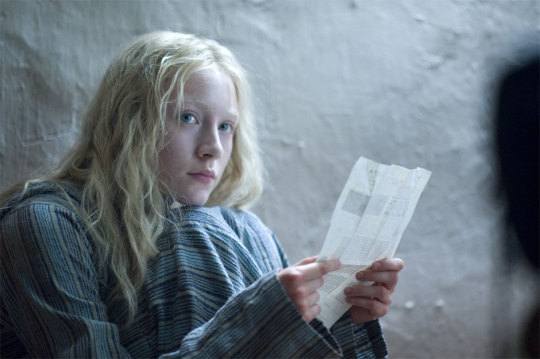
So, before I get into why you should watch this movie, I just want to take a moment to say why it's near and dear to my heart. Growing up as a queer kid in the early 2000s, seeing portrayals of people like or similar to myself on anything was rare at best. It was mostly in more "adult" movies or shows that my parents would occasionally let me watch with them that I'd see any lgbtq+ rep at all. Often times they were either walking stereotypes, designed to be buried, evil, or all three.
Then here comes this PG-13 action thriller with a wonderfully written main female lead who, at the time, was close to my age, and who got to kiss another girl (her very first friend, Sophie) on screen in an extremely tender and heartwarming scene. To say the least, it was a life changing moment for me personally.
Now that I've gotten that out of the way, Hanna is a suspenseful movie about a child super-soldier named, you guessed it, Hanna (played by Saoirse Ronan) and her adoptive (?) father Erik Heller (played by Eric Bana) exiting the snowy and isolated wilderness of their home and taking on the shadowy CIA operative, Marissa Wiegler (played by Cate Blanchette) who wants Erik dead and Hanna for herself for mysterious reasons.
It also has an amazing soundtrack by the Chemical Brothers, great action scenes, and it has an over arching fairytale motif, which I'm always a sucker for.
⚠️ Mild blood effects, some painful looking strikes, various character deaths, and child endangerment all feature in this film. However, given its PG-13 rating, a majority of viewers are presumably able to handle this one. Still, be aware of these going in.
Sidenote: It's recently gotten a TV adaptation on Amazon TV, although I have not watched it, and do not know if Hanna and Sophie's romantic/semi-romantic relationship has transferred over.
A Simple Favor

A Simple Favor is a "black-comedy mystery thriller" centered entirely around the relationship between two mothers, the reclusive, rich, mysterious, and regal Emily (played by Blake Lively), and the local recently widowed but plucky mommy blogger, Stephanie (played by Anna Kendrick). When Emily suddenly goes missing, Stephanie takes it upon herself to find out what happened to her new best friend.
It's a fantastic and entertaining movie throughout, with fun, flawed and interesting characters. The relationship between the two female leads is also implied to be at least somewhat romantic in nature, and they even share a kiss.
⚠️ The only major warnings I can think of is that the movie contains an instance of incest and one of the main plotlines revolves around child abuse, although both of these potentially triggering topics are not connected to each other, so there is thankfully no csa going on.
Edit: I legitimately forgot there was drug use in this movie until now. So, yeah, if that's a trigger, be careful of that.
I Am Mother
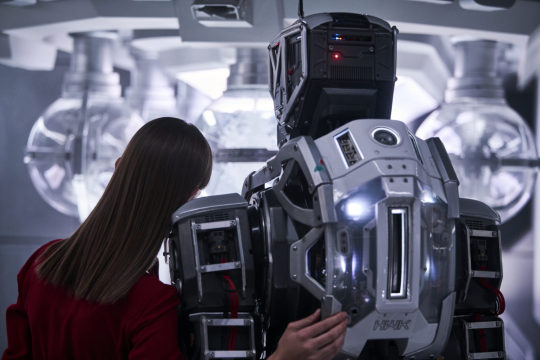
I became mildly obsessed with this movie when it came out. I Am Mother is a sci-fi film that centers entirely around a cast of two woman, and a female-adjacent robot who is brought to life on screen with absolutely amazing practical effects.
The plot is such, after an extinction-level event, a lone robot known only as Mother tasks herself with replenishing the human race via artifical means. She begins with the film's main protagonist, Daughter. Years go by as Mother raises her human child and the two prepare for Daughter's first sibling (a brother) to be born. However, on Daughter's 16th birthday, the arrival of an outsider known only as Woman shakes Daughter's entire world view. She begins to question Mother's very nature, as well as what's really going on outside the bunker she and her caretaker call home.
⚠️ This movie features child endangerment and reference to child death.
Lilo and Stitch
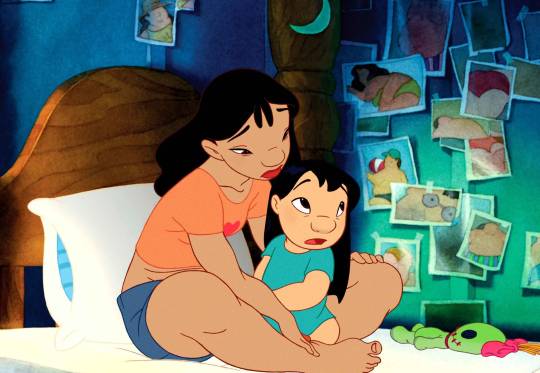
When I decided to add a single Disney film to this list I initially thought it was going to be hard but almost immediately my brain went to Lilo and Stitch, and specifically about the relationship between Lilo and Nani.
On the surface, this film is about a lonely little girl accidentally adopting a fugitive alien creature as a "dog," but underneath that the story is also about two orphaned sisters and the older sister's attempts to not let social services tear them apart by stepping up as the younger sister's primary guardian. Despite its seemingly goofy premise, Lilo and Stitch has a very emotional and thoughtful center. It's little wonder how this movie managed to spawn an entire franchise.
Despite the franchise it spawned (or possibly because of it), I often find that Lilo and Stitch is overlooked and many people only remember it for the "little girl adopts an alien as a pet" portion of its plot, and I very rarely see it on people's top 10 Disney lists.
⚠️ This movie could be potentially triggering to people who were separated from their siblings or other family members due to social service intervention. There's also a bit of child endangerment, including a scene where Lilo and Stitch both almost drown.
Nausicaä and the Valley of the Wind
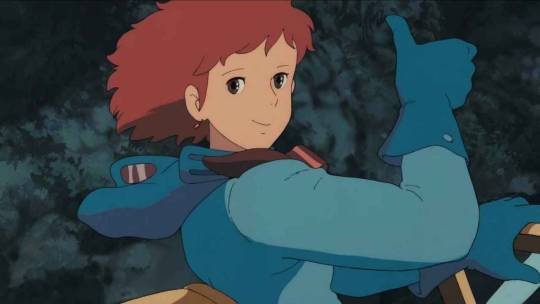
Unlike the above entry, I did struggle a little bit with picking a single Studio Ghibli film. Most media of the Ghibli catalogue have strong, well-written, unique, and interesting female leads so selecting just one seemed like quite the task.
However, I eventually settled on this particular film. In recent months, Princess Nausicaä has become my absolute favorite Ghibli protagonist and I'm absolutely enchanted by the world she lives in.
Set in a post-apocalyptic world overun by giant insects and under threat of a toxic forest and its poisoness spores, Nausicaä must try to protect the Valley of the Wind from invaders as she also tries to understand the science behind the toxic forest and attempts to bridge the gap between the insects and the humans.
For those who have never seen the film, I think Nausicaä's personality can best be described as being similar to OT Luke Skywalker. Both are caring, compassionate, and gentle souls who are able to see the best in nearly anyone or anything. She's an absolutely enthralling protagonist and after rewatching the film again for the first time in well over a decade she has easily become one of my all time favorite protagonists.
Whenever I see people talk about Ghibli films, they rarely mention this one, and when they do mention it, it's often in passing. In my opinion it's a must watch.
⚠️ This movie contains some blood, and the folks who either don't like insects or who have entomophobia may not appreciate the giant bugs running about throughout the movie. (Although most insects do not directly relate to real life bugs, and are fantasy creatures).
A Silent Voice

A Silent Voice is an animated movie adaptation of a manga of the same name. While I've never had the pleasure to read the manga, the movie is phenomenal. It covers topics such a bullying, living in the world with a disability, the desire for atonement, social anxiety, and depression in a well thought out manner that ties itself together through the progression of the relationship between its two leads, Shoya and Shouko. It's also beautifully animated. Although very popular among anime viewers, I've noticed that it's often overlooked by people who watch little to no anime. So I suppose this is me urging non-anime viewers to give this film a chance.
⚠️ As mentioned above, the movie deals with bullying, anxiety, and depression (with this last one including suicidal thoughts and behaviour). If discussion of those topics are triggering to you, than you may want to proceed with caution or skip this movie all together.
In This Corner of The World
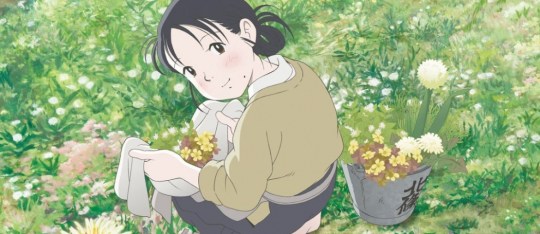
Another manga adaptation, this one taking place during WWII-era Japan. In This Corner of The World follows the life of a civilian Japanese woman, Suzu Urano, as she navigates simply living and her new marriage as the wartime invades nearly all aspects of everyday life. I think this movie is a good representation of what it must be like to be living as civilian in a country at war where the fight is sometimes fought on one's own soil. It was also an interesting look into pre-50s Japanese culture in my opinion. It's also beautifully animated featuring an art style I don't see often.
Despite it being well known among anime fans, I never really see it be brought up, even among said anime fans themselves.
Side note: I've seen many WWII dramas centering around civilians but they've almost always been about American or UK civilians. This was the first movie I'd seen that features the perspective of a Japanese civilain.
⚠️ Features the death of a child and limb loss. There's also a disturbing scene featuring a victim of one of the atomic bombs near the end.
Wolf Children: Ame and Yuki
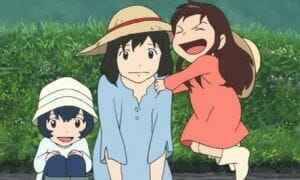
This film follows Hana, a Japan-native woman who fell in love with a magical shape-shifting wolf-man, and her trials with raising their children, who can also magically shape-shift into wolves, on her own. It's a very heartfelt movie about a mother's love and the struggles of doing right by your children when you have limited resources to actively guide and care for them. All the characters feel unique and alive in my opinion. Also, the animation is so good that my sister and I initially mistook it for a Ghibli film.
Again, like the previous two anime entries, I don't see it ever brought up outside of anime circles.
⚠️ There's some child endangerment present in the film, although none of it is the fault of Hana as far as I can remember.
Roman Holiday
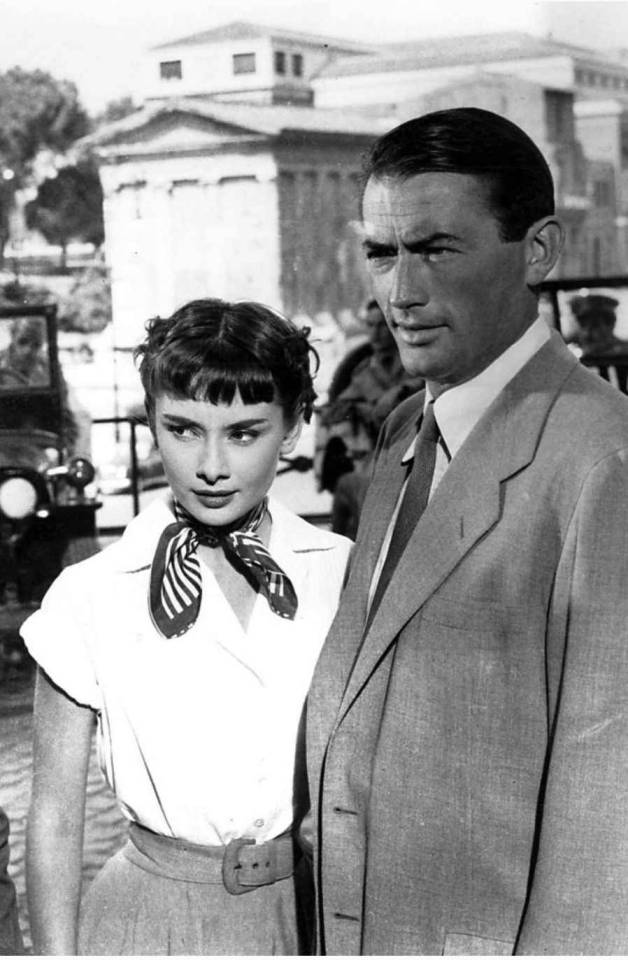
Roman Holiday is about the fictional Princess Ann (played by Audrey Hepburn), who while on a whirlwind tour of Europe, finally reaches her breaking point over having her entire life be one big schedule and all her words and actions being rehearsed. In the spur of the moment, she runs away in hopes of experiencing what life is like for other women. Unfortunately, she was previously given a sedative, meaning she doesn't get too far before it takes effect. Fortunately, she is found by the kind reporter Joe Bradley (played by Gregory Peck). Believing her to be drunk and unable to get an address from her (because she has none) he ends up taking her home for safety's sake and allows her to sleep off her suppose drunken stupor. The next day, he realizes who she is, and decides to take her on a fun sight seeing trip across Rome in hopes of getting the big scoop. Along the way, they begin to fall for each other.
This is my favorite black and white, old romance film. I think the relationship between the main characters is absolutely beautiful and I have a lot of fun watching it.
⚠️ I'm not entirely sure what kind of warning this film would need. However, it was released in 1953, so values dissonance will probably be at play for many viewers to at least some extent. For example, early in the film Ann is given sedation drugs by her doctor for her behavior, something that is very unlikely to happen today. Also, Mr Bradley deciding to take Ann home to keep her safe rather than call the police or an ambulance is a very pre-90s decision in my opinion.
#hanna 2011#a simple favor#i am mother#lilo and stitch#nausicaä of the valley of the wind#a silent voice#in this corner of the world#wolf chilren ame and yuki#wolf children#roman holiday#black and white film#anime#disney#studio ghibli#movie recs#top 10
177 notes
·
View notes
Text
Why Cullen?
Today I bring you a post I’ve been in the process of mentally drafting for a while, a post that essentially analyzes the age old question in the Dragon Age fandom: Why is there always something with Cullen?
To do this, I am going to go through different “phases” of Cullen discourse. My thesis and answering the titular question: It’s complicated, and I don’t think I can answer “Why Cullen,” but “there’s sometimes recycled discourses made about his character through the years, maybe there’s a pattern.” When it comes to Cullen’s detractors, I understand the fact that it might be frustrating to see much content for someone so “boring” when there’s more “interesting” and “well done” characters (though interest is of course relevant) so it leads to a lot of vitriol from both new and old fans who think the man had too much screen time already. Furthermore, he is highly complicated man dressed as a Disney prince, and the “Disney-esque” feel of his romance creates a dissonance between coming to terms with his problematic past and reveling in the romanticism. We can have a happy medium everyone, but because of what I can only describe as “tik tok thought” it’s become looked down upon to have problematic favorites, which leads to guilt in liking something problematic, or outright revisionism.
But liking things with problematic elements doesn’t make you a bad person.
Alright, let’s begin:
The first phase truly began of course with DAO with Cullen’s crush on the female Circle Mage Warden. Some were endeared, others not so much. I cannot speak to this phase too much as I was around 15-16 and pretty preoccupied with my high school drama instead of fandom, though I played both DAO and DA2 upon it’s release and followed updates for DA2 before it came out. Despite not being an active fandom member I was what they would call, a lurker. I knew some people liked Cullen and thought he was cute, wishing for more screen time after the game and hoping he’d be in DAI through IMDB message boards (remember those?) and YoutTube comments. When news broke he’d be an advisor in DAI and a romance option, I remember seeing a lot of people in those same spaces rejoice. I’m sure there were also people who weren’t so pleased, but from what I saw, people were happy. When Inquisition did release, I actually did quite a bit more lurking on tumblr despite the fact I didn’t have a blog, because I played the romance route, really gravitated toward it, and wanted to see fanart and such. People liked the romance, liked his arc and how Bioware handled his struggles with lyrium; and found it realistic. Even in my lurking days I did see some blowback on Cullen from detractors, those who didn’t think he should have been the military advisor (which canonically it makes total sense to me why he’s where he’s at, but I won’t get into it here however.) But likely because I wasn’t fully “in fandom,” my surface level understanding of how tumblr felt about Cullen was relatively positive and there was only standard fare discourse.
Phase 2: I can speak about this phase better because I established this blog in 2017. Two years after DAI was released, you still had a lot of fans who loved his romance and character, but you also saw a lot of those fans really dive into his flaws, insisting even that just focusing on the Disney Prince aspects of him reduced his character. There were also more internal debates. Would realistically Cullen be a good father was one. One thing however was for sure, there was a strange them and us line between detractors and fans, and to many fans, myself included, oftentimes the Cullen blowback would extend beyond the valid, “hey I don’t think his characterization was handled well” or “his redemption arc isn’t that great” to outright vitriolic hate that blatantly ignored his PTSD and lyrium addiction, and even sometimes “you just like Cullen because he’s white.” As a POC fan it was a fantastic thing to be accused of. I used to be more involved with discord during this period and I remember a few discussions about this as well. Even those indifferent to Cullen didn’t get it.
Overall, I have to say the air was one where people in Cullen fandom enjoyed all aspects of him, from delving into this troubled past to indulging in the Disney prince aspects of him. It was a happy medium I think, even if occasionally I would see a Cullen fan feel bad for liking him, and feel like they needed to justify it. Heck I even did and still do feel that way sometimes, like I need to justify what I like. But we all come into fandom for different reasons. I come into fandom some days for different things. Sometimes I want smut with my favorite character, other times I want more intense thought pieces and challenging fics. Great thing about fandom is that it’s a bakery that has cherry tarts, cinnamon rolls, or all kinds of pie depending on your mood. Craving a different sweet treat, you can make your own. Or you can commission an artist or writer for something you fancy.
*(sexual assault mentions here late in the paragraph****)And now I’ve been warped back into Cullen/DA fandom through what I am calling phase three, where the general air on Cullen reads as��.very different. After having one foot outside DA fandom for a while coming back and reading the air has been different. There was the bizarre nuggetgate and other things with Cullen. Now, instead of accepting his flaws and exploring him there seems to be a lot of revisionism going on, as if his past never happened or we’re supposed to ignore he was a templar. A sexually active Cullen is looked down upon but in a different way from before. Instead of smut works with him “reducing his complicated character.” it’s distasteful to write smut with him where he’s sexually dominant or even just a lot of smut because he was sexually assaulted. (***Now, it is implied that he was, if you are a female Circle mage in DAO, with “sifting through my thoughts, tempting me with the one thing I always wanted but could never have” but this is an implication. I will be honest, it is what I have implied. However, it’s not there if you’re not a female Mage. He was however canonically sexually harassed in the Winter Palace, something I will always argue, even if canon treats it like a joke, even if Leliana tells him to “just look pretty.” Just because he is a man doesn’t make it funny that someone grabbed his bottom, and if you take Cole he flat out says “Cullen is afraid.”***)
So here I am, wondering what changed and what’s going on. Here’s what I believe: Cullen is a complicated character and his flaws and his past make him interesting to me, and they are interesting to explore. However there is nothing wrong with wanting to just explore a romantic, sexual Cullen. He’s a character with many facets. He’s romantic, determined, nostalgic, stubborn, unrelenting, loyal, driven, all things that made him seem so real. Here we get to my theory: in today’s media “criticisms” I see people—particularly younger people—beat themselves up for liking something problematic. It’s like every time you engage with media that’s potentially problematic you have to write essays to yourself why it is so and hold yourself accountable. I see this on tik-tok a lot and why I refer to it as “tik tok thought.” Look at the way some young Hamilton fans talk about the musical, or heck even here, and you may see what I mean. It’s like if you don’t acknowledge the problematic aspects of the historical figures behind their fictional portrayals in the show you’re a bad person. Same thing with nostalgic Disney fans my age in younger, if you don’t clown on Ariel for “choosing a man over anything” (SHE LIKED THE SURFACE WORLD BEFORE SHE MET ERIC) you don’t get your brownie points.
I want to make it clear: being critical of media is good. I am glad I see young people and people my age think about the messages we are given in media, but somehow this is turned into ANALYZE EVERYTHING ALL THE TIME. Ya’ll I’m a grad student. I’m critical most of the time, when I come to my tumblr blog’s lawn I’m here mostly to have some fun, and hey sometimes my fun is being critical. But sometimes it isn’t. You do not have to always be critical. You do not have to beat yourself up for liking something that’s problematic or write an essay about why it is as if that’s your due diligence in stanning a fictional character. I’m going to be honest I used to kind of think I had to justify my likes once, especially because of the Cullen vitriol on tumblr. I worked overtime in my early fanfic efforts to try to prove to the world I knew Cullen was problematic for fear I’d be perceived as just an idiot horny fangirl. Well, let me tell you: I largely don’t think that way anymore. If I want to just enjoy writing some smut or reading some smut with him, I am. But I think there is a second part of this in Cullen fandom currently, a revisionism of his problematic elements. Now, if you have to do mental gymnastics with a character in an effort to ignore problematic elements, perhaps you don’t like the character that much. That’s totally okay. DA has many awesome characters to write about and stan.
So, why Cullen? For so many reasons a bit of a shit show has always followed this character. There’s a divide between fans and his detractors and sometimes there’s a divide within the Cullen fandom. What I can extrapolate for now is the need to keep him squeaky clean and safe and away from anything “problematic” because his of past, his templar roots, or the fact that he’s white when there are POC characters with less content. It reads as a guilt associated with liking him. But please, do not be guilty. He’s not real. Templars aren’t real, mages aren’t real, Cullen isn’t real. Here’s my advice, something I learned while in my directing class in college. What my teacher always said was direct what turns you on, direct a story that gets you thinking, gets you excited. What gets you thinking and excited in a fictional world may be tons of conflict and dramatics, or it may be peace and love. Sometimes it can be both or more. Don’t shame others for coming to a bakery and wanting blueberry when you want cherry, and the baker has both, especially if the baker labels each pie, especially if the recipe for the pie has some salt in it and people like the salt. We can have it all and enjoy it all. What we want in our fiction doesn’t always align with something we may want real life. Lots of people write Modern girl in Thedas stories. Ya’ll if that actually happened to one of us it would probably suck. I’d probably get killed and not even get to meet Cullen and pose around the desk to get things going, so I’d rather it not happen. However, it is fun to read about.
Again, don’t be guilty for liking Cullen, please. But if you have to do a lot of mental gymnastics to like Cullen, maybe you don’t like him at all. To that I say, there are many other amazing characters, or perhaps you could write your own.
#fandom critical#I spent too long on this#deleted a lot#but now it's written and I can move on#Cullen rutherford
262 notes
·
View notes
Note
The 'how's my portrayal meme' - where do I start? You know I'm going to lowkey be a little bias because you're the ultimate waifu but I want to write this to you regardless.
Thing is, when you first approached me with Mel I remember being a little like ':o' at how structured, neat and well-thought out everything appeared on your blog. It was all so in line and well put together and...professional? Which I remember being so impressive to see and more so INTRIGUED BY, I was like OHHHHHHHHHHHHH ok-
and then when we started plotting and chatting OOC and I met this wonderful person who is down-to-earth, funny, interesting, has an excellent grip of canon / and her own character as well as human interactions & storylines, it was like. Oh my god, this is the perfect roleplayer.
I know you said 'how's my portrayal' - I'll get to that PFFFFFT-
but for real, I hadn't had a roleplay or partner in a while that I could plot in depth with and write something further in depth with and to suddenly have that was awesome. To go from a discussion about secrecy and plots and (maybe) blackmail and all of that between our muses to, oh shit, they're falling for each other! Was so cool and happened so naturally that it felt so fluid and comfortable to write. More-so with you because you're such a special writer. (and this is where I get into portrayal OKAY---)
the way you describe Melissa and her surroundings - her clothes (which I always picture looking so glamorous), the intricacies of the Inn or whatever bar it is she's running, the people and npcs in her life that support her *or even dont*, the little bits and pieces that make up a story and are important. It's like, you have this way of writing that isn't anything different to a novelist / story-book-writer. I read your replies and it's like reading a little chapter in a story, you take the world and create it not just through Mel and what she's doing but also her surroundings and the way that she looks. It's got this almost Ian Fleming quality to it and I'm SO THERE for it, I love it!
As for Melissa; god, what can I say that I haven't already said? I love her. So much. She's this perfect mixture of beautiful, powerful, vulnerable, maternal. She's all of those brilliant traits rolled into one excellent example of a fantastic female character. I think my male muses fall for her so hard because she's got something for each other. That strength, that care, that softness. But then in the same breath, we have those verses - the Killer Queen verse - the obsession that she denies from Kano but laps up from Lautrec. I LOVE that you shape these verses and you don't just say 'oh yeah, she's in The Boys now' instead you create an entire world, an entire REASON for her being there.
God, I've waffled (when don't i lol) but I really do adore you and your girl. I think your writing is some of the best I've encountered on this website and I am so thankful to not only have you as a writing partner but also a friend. You are your girl are special, always remember that.
how's my portrayal? . accepting
You should know that I am smiling like a psycho on this side of the screen because this was so sweet? So cute? Also so obviously fueled by some sort of narcotic because where in the world is my writing in any way similar to the friggin’ CREATOR OF JAMES BOND but your praise has nonetheless left me crying happy tears. ;---;
Gosh Han, thank you so much for this - I believe you were one of the very first mutuals of mine who took a chance on Melissa when I returned to tumblr in early 2020 and not only embraced her, but also me? I met so many lovely people through you or thanks to you too and I don’t think I will never not follow any of your blogs because I LOVE to see what you create, the passion for your muses and just how overall great you are at making these side characters and/or ‘unpopular’ types so full of life and entrancing!
I guess Heid will forever be the first love but also a prime example of how much talent you ALSO possess and how you have been able to single-handedly tackle these villains with such a refreshing and tridimensional approach to them. You’ve made me care for Homelander, you turned me into a Kano stan and I’m here looking at the next thing I’ll be wrecked by because I know it’s just going to be a matter of time. 8)
I will never be able to say ‘thank you’ enough times because it was against Heid that I’ve been able to fully flesh Melissa (and Fred 8D) for the first time in years and I feel I’ve also developed and grown as a writer so fucking much thanks to the entire timeline we plotted for them - and then for all the other boys later, too. :) I love the range we have and the fact we’ll always be here for each other and you are truly a cornerstone of my tumblr experience. <3
I am so fortunate to have met you and TO THIS DAY I appreciate your kindness, your friendship, your sexy accent (aha 8D) and the fact we’ve built all these amazing stories together. I’m sure we’ll build even more heartwarming and heartbreaking things together. :D
3 notes
·
View notes
Note
Hiiiiii, I rly like your writing X3 I was wondering if you’d answer this question: What is your interpretation of what SEGA is doing with SonAmy as of right now? Seems like it’s becoming more and more canon. I know you’ve done similar question before, but could you maybe just answer this for 2021? Thanks!💖💙
No problem! And thank you, lovely Anon~<3 I love writing for the feels~ But also for the accuracy to be as close as possible if I can manage it! First of all, they’ve always been canon? Maybe not ‘in-world dating’ canon but canon in the sense that they are a official SEGA advertised couple since the get-go.
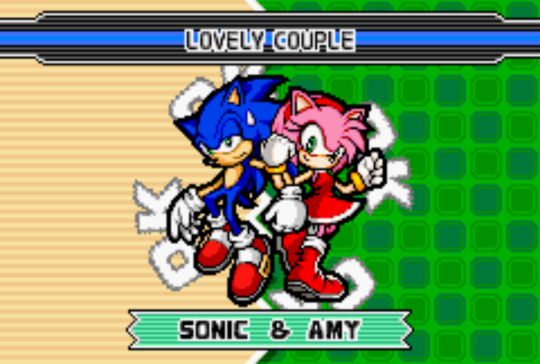
Amy was created to literally be in the slot of ‘Sonic’s Girlfriend’ where she had feelings for Sonic and always a fun mystery as to decipher Sonic’s subtle ‘returned caring’ for her.
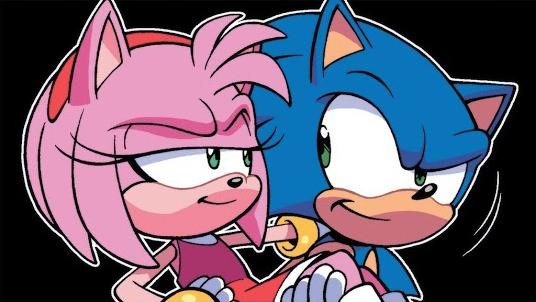
As for 2021 we are so FREAKIN’ HAPPY to hear that SEGA is FINALLY marketing the two and VISUALLY SEEING the sales of their ‘couple shirts’ and the like make some profit. Furthermore, we have long-time fans and professionals in the careers within SEGA also vocalizing that they don’t mind the couple and even support it. With less emphasis on the ‘fandom fanatics’ of the raging past and more so on the fantastic marketability and popularity the couple brings to SEGA’s exposing their main IP, it’s become almost common ground to expect more and more people liking romantic and suggested romantic couples in all ranging medias.

We need also mention the alarming rate of the worrisome numbers in Japan recently. Conducted studies have shown that most of Japan’s population is elderly, and in the very near future (About 5 years or so) a good chuck of Japan’s population will die. This means the Japanese Government is promoting more and more companies within both entertainment, advertising, etc. to be more ‘promoting family’ in their media. Japan needs more babies! And guess what?
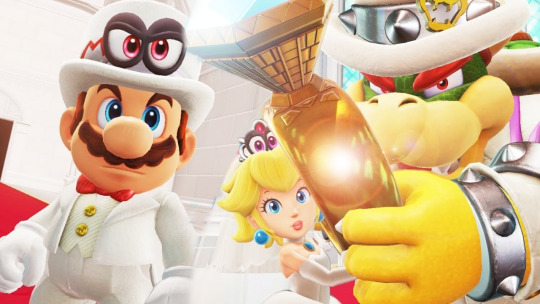
Mario Odyssey comes out with a completely ‘Wedding themed’ video game.
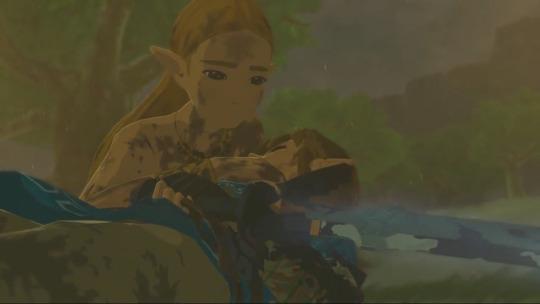
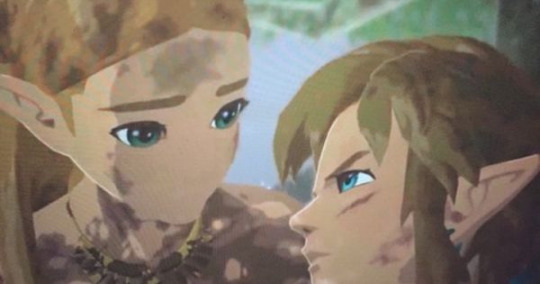
Dramatic romantic underlying's in Zelda’s new game.
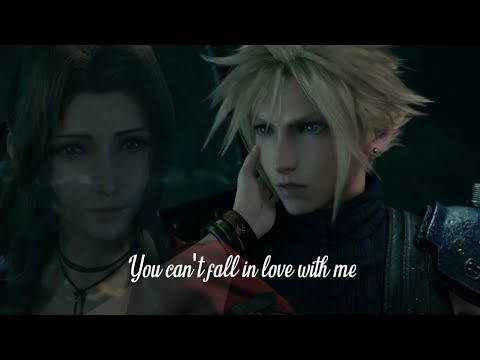
Final Fantasy 7 Remake’s focus on romantic underlying’s along with Cloud willingly saying (English version) “Do I have any say in this?” As though to fight the idea that romance can’t happen and-
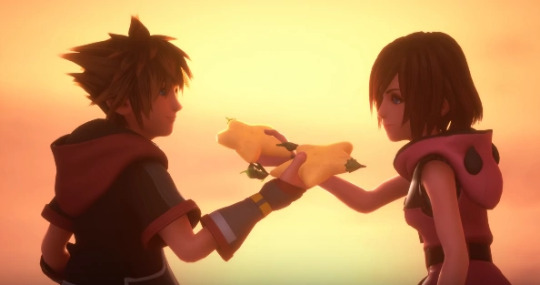
Kingdom Hearts 3′s romantic underlying that literally has a song (Japanese) talking about rings and getting married called “Chikai” or also ‘Oath’ that in English is rewritten to a romantic song about going deeper into love called “Don’t Think Twice” but literally has the two ‘making their fates intertwined’ in a symbol of ‘romantic intentions’ such as marriage or even just fidelity in a relationship.
So? How does all this influence the latest Sonamy supersonic boom we’ve seen in the media recently?
Although Sonic is his own character, he’s also only 15 (But as many of you have seen in Anime, Japanese ages of appropriateness are different then our own cultures and societies) we see faint glimpses. In the mostly American-made Sonic Boom t.v series, the comedic moments of Sonic and Amy are very much to a genre of American audiences and how we view ‘funny love’ should normally be marketed as. (I don’t always agree with what they say, but that’s how they’re trained and believe the ‘trends’ go... so ... can’t argue with professionals? Eh? -I personally think they’re outdated *cough cough*)
Sonic is not one to express feelings in overly dramatic ways which is common place in American television and media, but he’s also got a ‘boy’s heart’ which means we won’t see a lot of things from him BESIDES ‘romantic underlyings’ that are probably going to be initiated and themed mostly and primarily in Amy Rose’s character (If at all shown or expressed.)
For these reasons, I believe SEGA is just hopping on the bandwagon and doing what they’re told, while also following the latest trends that the other big fellow companies are making a significant profit on. I know we wish and want SEGA to be ‘special’ in how they think, but they really are just a company that is trying to survive and outlast the competition.
It’s sad to think that way, especially when SEGA used to be so creative and always influencing the next best thing but that was YEARS ago and they’ve learned to tread water since then...
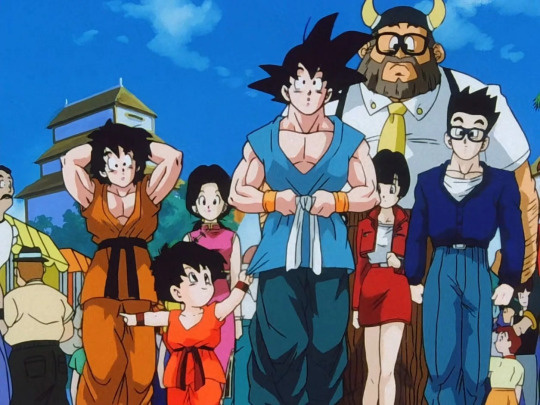
(Goku being a grandfather emphasizes family in this particular scene where they take his granddaughter before a big tournament fight to a fair/festival. We see Goku with his family too, or at least, a successful son with his wife and daughter, spending time with his Father-In-Law, and the like.)
We see it in Dragon Ball emphasizing family, we see it in more romance-themed animes (and those that have only recently done romance, when they--for the longest part--never indulged in such things before or previously) and we now see more japanese games and media centralized around that.
What does that mean for Sonamy? Hopefully good things! Because if you buy the merch, they’ll produce more content. It’s a basic ‘supply and demand’ formula. If the demand (meaning how much you spend and want Sonic and Amy couple merch) goes up, then they have to supply to keep their business afloat. If they don’t they sink, but that DOES NOT MEAN TO BE AGRESSIVE. It means just support when they do something you like, and positively, kindly mention what you liked and wish to see more of if the future allows. No one reads aggressive writing unless, they too--wish to be aggressive back.
SEGA’s had issues with aggressiveness before, please let them see that couples in the sonic world won’t have a negative impact on their branding with irrational and bad-media frenzies. (Now, after saying this, I know people will start to do just that, don’t feed fire with fire, just let the fire burn till it has nothing left to consume, and carry on happily posting fanart or fanstories of what you love. Ignore to extinguish, which is what SEGA will do to Sonic shipping fans if we don’t act somewhat reasonably, okay?)
My predictions are such: 1. Amy’s crush will sadly lessen in impact and become more of a novelty, something that is treasured when moments arise to reveal her crush on Sonic, which in my opinion, is not her personality, but due to the heavy influence of women’s portrayal (Especially in America) being overemphasized and not done well, this is how they will try and combat it... (No one does this right and you shouldn’t base a characters solely on political reasonings...) 2. Sonic will have moments of caring for Amy or doing something sweet that can and probably will be interpreted as ‘a couple moment’ but he’ll remain mostly about other things, and the ‘underlying romance’ will have to come through Amy Rose’s character. 3. SEGA will loosen some rules after seeing more and more of the productivity and trend associated with marketing romance, and to keep up with demand and growing times, will finally let small moments emerge between the two, but the fandom will not be satisficed since we will now be desensitized to overly avert demure and oblivious stereotropes that will date their characters. and won’t allow them to proceed smoothly into the new area of customers and audiences.
Children are becoming extremely observant and aware. They are clever, and they always have been. It’s time to market to Children and Young Adults, not babies.
My ways to avoid this, predictions 1: New employees will surface that will start to get a name and reputation in the Sonic Fandom, along with youtube and internet stars who will influence certain marketing schemes (as is starting to appear now, and I feel will be just like ‘star marketing’ or ‘influencers’ that will be popularized in fandoms that companies will slightly make use of.) that will encourage new ideas and bring about a sudden ‘boom’ not expected. (Especially after the lull of the pandemic, I feel there will be an abundance of things happening in the upcoming years... but nothing right now, unfortunately, but at least they’re forced to focus on working on things instead of just releasing to keep up with other companies.)--In other words, they will incorporate new blood with the old, and they will lead Sonic’s IP into a ton of nostalgia and new beginnings that will actually stick and become Sonic’s new brand identity. (This will resonate with fans old and new, but still be a fresh leap into the future for the franchise and fandom.) 2. Sonic’s negative popularity will start to decrease, leading and paving the way for fame and possible adjustments such as more romantic themes to keep up with trends and Japanese Government demands (especially when the population starts to wither and it becomes an emergency situation to start encouraging family ties). Other than sonamy or romantic things, I believe new characters will pop up to ‘test the waters’ and see if we like romance intertwined adventures. 3. Villains will become more sentimental and caring, less comedically, they will be redeemable entities so that the company can market them more. This can also lead into funny romances that help other romances develop and have more meaning. (In other words, they’ll dig into their vault of familiar and new faces, go off the trend of ‘redeeming the villain’ and have more heart-to-heart moments that may inspire more canonical couples... especially if a newer villain were to have a crush that ended up helping two canon characters get together and leave the audience sympathizing more with the villain. This is an actual trend starting where Villains have more character and roles other than just being evil and staying that way till death. I suspect this will be popularized in American and possibly foreign media as time goes on.)
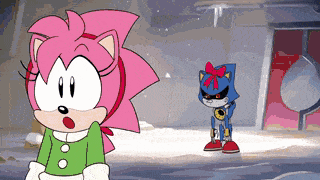
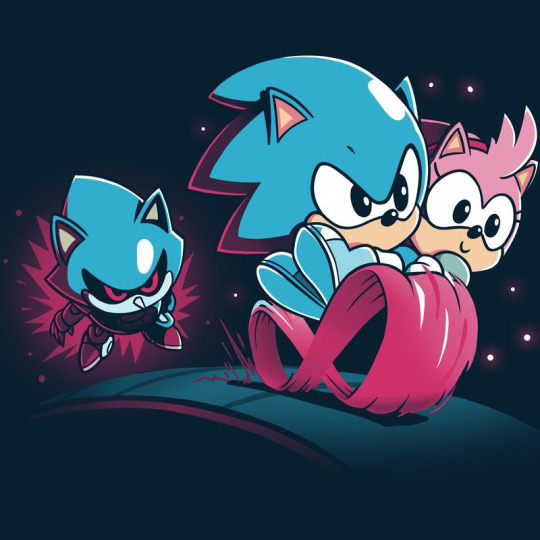
(I actually have a lot of the sonamy shirts lol But here’s an example of the villain actually helping the canon couple have more ‘romantic underlying’ moments together <3)
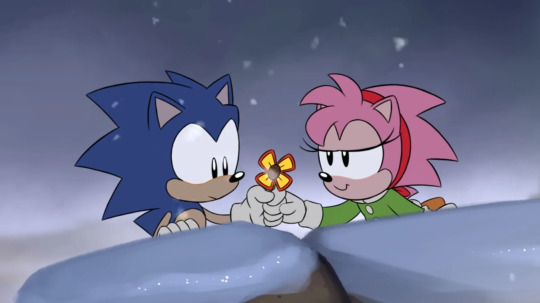
Those are my current predictions, though I admit that some don’t sound all that hopeful. But hey! All my hopeful and positive predictions have already come true XD Sonamy is being marketed, the new media (Sonic Boom at the time) had subtle but more forward comedic hinting (that I don’t feel went all that well? But eh, that’s just me!), and SEGA continues to try and reface Sonic which his brand doesn’t need. I believe they will still try and rebrand Sonic continually until something sticks for them that they like. Sonamy may go through many iterations, as they are still hesitant with it, and we see that by only marketing their ‘younger selves’ as in Classic Sonamy, and are too ‘shy and uncertain’ if backlash would happen if they advertised a more mature-looking Sonic and Amy marketing. Again, I don’t know if they’ll fully grow out of this, so I predict they won’t.
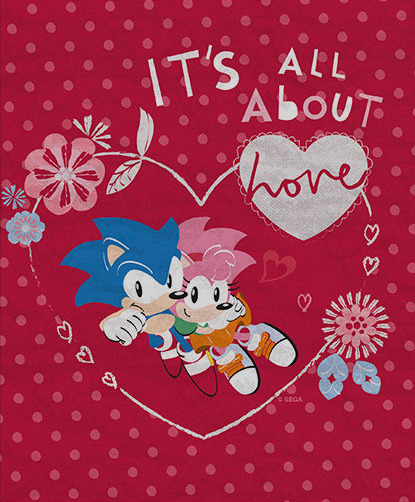
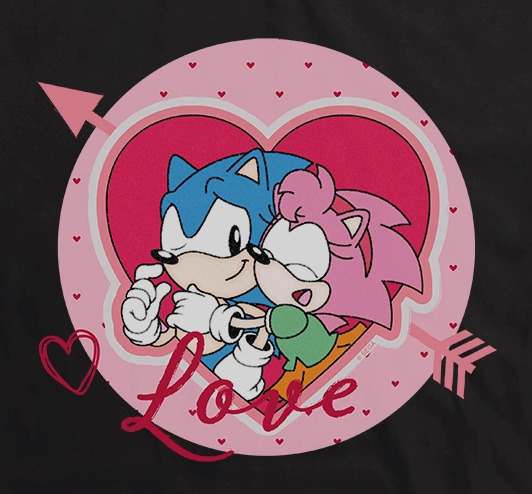
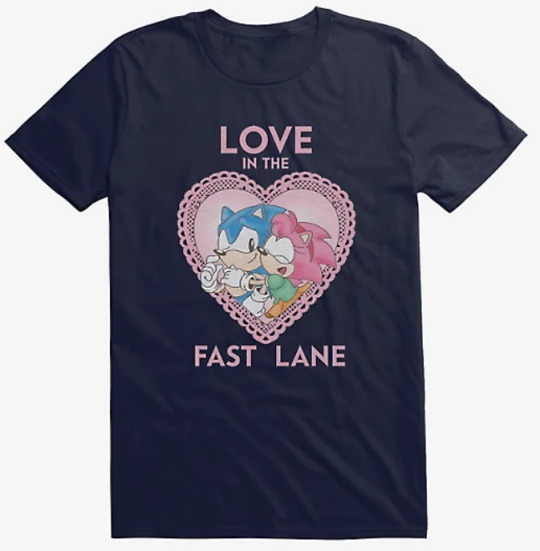

(I have this one but in black <3 <3 <3)
That’s it for now! My positive last comments would be the more we buy/purchase Sonamy merch, the more we’ll start seeing it in their media and entertainment products. Until then, do your best and write, draw, and review -kindly- to keep those articles of enchantment alive with the sweet sound of--”When will Sonic and Amy finally have a love song AMV moment for us?” lol
#cutegirlmayra ask#ask cutegirlmayra#sonamy#sonic the hedgehog#sega#amy rose#cutegirlmayra#sonic ask#ask sonic#sonamy ask#ask sonamy#sonicxamy#sega marketing#anime#video games#japan#sonamy predictions
86 notes
·
View notes
Text
Thoughts on Mistborn Era 2 (Wax & Wayne):
My main take on these was “ah, looks like Brandon’s taking some time off from his magnum opus to write pulp Western/detective/crime novels”, and I was very amused to look up Brandon’s comments and see a ton of interviews with him saying, “so, this is absolutely me having some fun writing pulp Western/crime novels”. It’s nice to have a writer who’s not too proud to - accurately - describe his own stuff as pulp yet still do a good job of it. They remind me a little of the Dresden Files in terms of the mystery aspects, the urban fantasy tone, the wit, the lack of diplomatic/political subtlety of the protagonists and, of course, the rampant property destruction. But Brandon’s a much more thoughtful author than Jim Butcher, and treats his female characters better.
On the topic of gratuitous property destruction: Wax, for goodness’ sakes, stop shooting the ground! That’s infrastructure, Wax! Fixing the streets takes work, Wax! You’re not a dusty dirt road in the middle of nowhere any more, Wax! Just drop a coin like they dud in the old days! Or a shell casing or bullet if you desperately need to be hardcore. But rampantly firing off weapons in urban areas just to get a base for your Allomancy is a terrible idea.
This was a wonderful follow-up to Mistborn because it was a lot lighter and the stakes were a lot lower, which is nice for a change. I was reading the intro to Elantris where it was talking about people in Brandon’s early writing group telling him he needed to raise the stakes, and personally, I like low stakes. Well of Ascension/Hero of Ages were a grind, much as I liked the ending, and I would be up for more stories like Dawnshard, with low stakes and the heroes resolving the plot by non-violent means.
Marasi and Steris are both very well-done characters - I was definitely shipping Wax/Marasi in the first book and had no expectations of the Wax/Steris engagement lasting, so I was quite surprised, but the switch was well done and I liked it. Marasi and Wax’s feelings were a crush/hero worship and a rebound, respectively. And it’s nice to see a relationship grow gradually like Wax and Steris’ did. What Brandon did with Steris, starting out with a portrayal readers are unlikely to lije and letting her grow on them, is risky (especially with female characters) because readers may hold to first impressions, but I thought it worked very well.
Wayne’s backstory and reaction to it hit hard and was one of the best elements in the series. Another entry in the diverse array of Sanderson redemption arcs. It’s interesting because Wayne both is and isn’t haunted by it - he takes it seriously, it affects him deeply, but he doesn’t habitually brood, and it doesn’t prevent him from being a generally lighthearted, funny, silly person most of the time.
Wayne is absolutely right about the value of certain goids being an arbitrary thing invented by rich people. I’ve had caviar, once (as a garnish on a nice pasta dish at a fancy restaurant). It tastes like nothing. Entirely nodescript. The sole purpose of caviar is to communicate “this dish is fancy (and so, by connection, is the person eating it)”.
I’m deeply protective of Sazed and get very affonted when characters criticize him. I think he’s done an excellent job. It’s hard to wrap my head around the sheer scale of Bleeder’s overreaction to the possibility of her boyfriend moving back to the city. Though on one level it makes sense in that the kandra are of Preservation: she is going to see maintwnance of an existing situation as inherently better and more desirable, even if a change could still turn out well and be something Wax enjoyed. And I don’t feel like Sazed telling him about Bleeder being Lessie would have helped anything - it just would have made the decision to kill her harder, not less necessary, because she was incredibly malicious, destructive, and dangerous and there was no other way of containing her.
The resolution of Shadows of Self is exactly the sort of thing I wanted to see, politically: the mass protests and risk of riot over poor wages, unemployment, and mustreatment of workers is resolved by a committment to address those problems, because the workers’ anger is legitimate and their cause is just.
I’m heartily frustrated by Wax, because it is his responsibility - it is literally his job, he has employees and a Senate seat! - to address the major political and economic problems of Elendel, and he neglects them. I don’t care if you’d rather be out shooting things! You have resposibilities! The workers in your factories are the source of the money and prestige that lets you engage in your gentleman-crimefighter hobby, and you owe it to them to see that the city operates in their interests. You can do far more good in that way than by shootin’ bad guys. Do. Your. Damn. Job. Steris seems to be nudging him in that direction, at least.
In general I’m impatient with a lot of the law-enforcement attitudes. Miles is a villain for whom I have absolutely no sympathy. Oh, so you’ve turned evil because, despite your 15 years of work in law enforcement, crime still exists? Yeah, maybe that’s because your belief that crime will stop existing if you shoot and/or hang enough people was never realistic. Likewise with Wax’s skepticism regarding Marasi’s ideas on how crime can be reduced through better urban planning and social policies - no, Wax, it won’t entirely eliminate crime, there will always be people who are just plain malicious, greedy, venal, or violent, but if you can reduce it by, say, 50-70% by better social policy, that would still be a good thing, right?
The period newspapers are great fun. I want a TenSoon plushie! Come on, Brandon, you’re musding out on a fantastic marketing opportunity! The one thing that bugged me was the ‘Pewternauts’ in The Bands of Mourning. In the first place, it’s a nonsensical name - real-world dreadnaughts, of which these are obviously supposed to be the equivalent, were called that because it literally meant ‘these having nothing they should fear’. The apex predator of military warships at the time, if you will. You can’t just create a random fantasy portmanteau amd pretend that it works - it’s like calling a scandal in a fantasy novel something-gate even though the Watergate scandal doesn’t exist in that world! Secondly, dreadnaughts were part of a massive military arms race in a world where European wars had been commonplace for centuries. The Elendel basin had never had a war in 300 years - these aren’t something that someone would invent just off the bat. Having similar technology to turn-of-the-century earth doesn’t mean it will be applied in the same ways, not with a completely different political context.
In general, New Seran’s complaints seemed overblown. Yes, the transit system treating Elendel as a hub and lacking effective connections between the outlying regions in aggravating. (It’s a provlem that plagues urban public transit systems even now - most routes are either local or feed into the city centre, with relatively few goung from one suburb to another, even as trans-suburban commuting vecomes more common.) But it’s not remotely the kind of thing you fight a war over! I feel like Brandon’s trying to recall the American Revolution, a bit, but the distances are so small (Elendel and New Seran are about as far apart as Ottawa and Toronto) as to make that ludicrous. What they really need is some kind of equivalent to a regional district authority, where representatives of multiple local governments can get together to work on issues of regional planning.
143 notes
·
View notes
Text
the many faces of tom riddle, part 5
- more myth than man... or not? the mortality of tom riddle and the anatomy of a villain-
That leaves us with Ralph Fiennes’ portrayal of adult Tom Riddle/Lord Voldemort in movies 4-8.
I generally find adult Tom Riddle disappointing, even in the books, in terms of character depth. Instead of delving into his motivations and the inner psychology of a villain, we get... slight body horror? And in the movies, it’s even more egregious.
If a story is as good as its villain, adult Tom Riddle is a bit of a let-down, especially on-screen.

“I was ripped from my body, I was less than spirit, less than the meanest ghost . . . but still, I was alive.”
Perhaps the very first time I watched it, I found this scary, but I must confess that nowadays, Voldemort’s resurrection is more funny to me than anything else. The forked tongue and the nose slits, yes, are supposed to allude to Tom Riddle’s loss of humanity, but I don’t think it...worked out that way in practice.
I know that’s how it is in the books, but ugly equals evil (and vice versa) is a tired trope. not only that, but under the CGI, Lord Voldemort is so difficult to relate to, so inhuman, that it’s hard to (1) see his true depravity (2) connect with him emotionally (3) at least for me, not laugh at him flapping around the graveyard in GOF like an oversized crow.
Now, the reason I’m going on about this is not (just) me being petty. Lord Voldemort is the Boggart for most of the characters in the HP universe, meaning their greatest fear is Lord Voldemort. He represents Fear; as such, he should be utterly terrifying. Now, I don’t mean horrifying in that sense, but Voldemort’s grand entrance should at least feel somewhat unsettling, have some sort of a Gothic atmosphere...
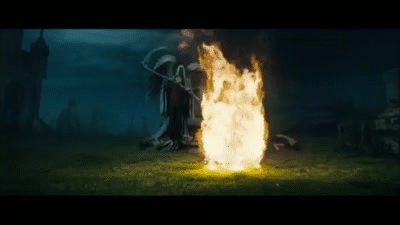
"But then, through the mist in front of him, he saw, with an icy surge of terror, the dark outline of a man, tall and skeletally thin, rising slowly from inside the cauldron."
Visually, this looks great. But it’s not scary. And I’m not a purist by any means, but the words are scarier than the book. Darkness induces fear.
“The lack of any kind of visual stimuli increases anxiety, uncertainty, and tension.”
So, having Voldemort’s pale body materialize isn’t as scary as it could be.
Furthermore, I think Fiennes’ overexaggerated expressions would actually come across as properly horrifying/threatening rather than funny if they just left his face alone. Yes, Fiennes does manage to emote the fear and the anger through the CGI, but it’s like he’s too alien to be scary, at least to me. The amount of memes with Voldemort suggest I’m not the only one this way inclined.
I think there’s probably a problem going on with the uncanny valley. (Images from the Mori essay linked).
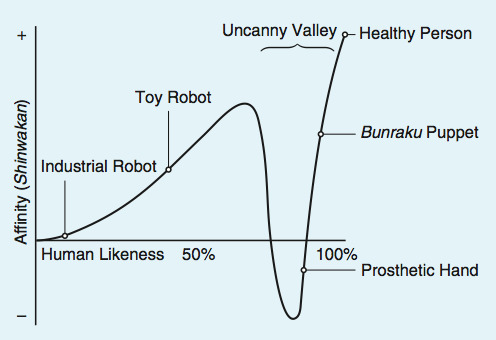
[When things are still]
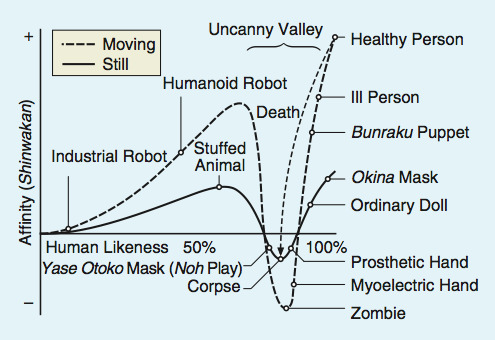
[Creepy things are creepier when moving]
Now, I assume Voldemort is meant to be zombie-creepy, or at least that how Harry describes him in the books.
"The thin man stepped out of the cauldron, staring at Harry...and Harry stared back into the face that had haunted his nightmares for three years. Whiter than a skull, with wide, livid scarlet eyes and a nose that was flat as a snake's but with slits for nostrils...."
Now, we can’t get Harry’s experience of being haunted by Voldemort in his dreams, because what I think makes Voldemort’s countenance so truly frightening to the other characters isn’t his snake-like nose or his red eyes, but the potential. Voldemort is, in essence, the Grim Reaper. You are at his mercy, and you’re probably going to be dead.
“This time, I shall enter the fray myself, Harry Potter, and I shall find you, and I shall punish every last man, woman, and child who has tried to conceal you from me. One hour.“
And yes, Voldemort can be quite funny and witty, but..
“I will allow you to perform an essential task for me, one that many of my followers will give their right hands to perform.” (To Peter Pettigrew)
...it’s still incredibly dark, sadistic humour. Whereas the teenage Tom Riddle we’ve been discussing has just barely dipped his toes into evil, Voldemort is, well... swimming in it. At this point, he think he undeniably enjoys causing pain.
And much of what makes Voldemort scary is subtle.
For example, what I personally consider haunting is the fact that he’s got a cave full of Inferi. A cave full of reanimated dead bodies.
Either he dug them up, which is unlikely... or perhaps, a twenty-seven-or-so-year-old Tom Riddle would lie in wait like a bird of prey, very quietly and patiently, perhaps reading a book, waiting for an unsuspecting Muggle to wander past. Maybe killing is a game to him at this point, when it’s not so personal as killing Harry Potter. Maybe it’s a whispered Avada Kedavra, and then he carries the dead body away to his cave. Maybe he Imperiuses them to walk off the cliff. Maybe he tortures them first.
Shudder.
And I don’t think you can show that kind of horror through any CGI or make-up, so...
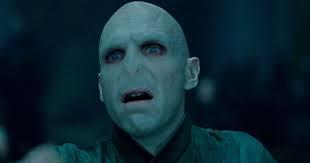
You know what is terrifying? Revolting? True crime; real-life people who do unspeakably horrible things. And I think a lot was missed out on, in stripping Tom Riddle physically of his humanity. Yes, Riddle is a monster...
But, as we’ve seen, he’s a human monster, not some eldritch horror from the seventh level of hell or something.
I just think it would be interesting to have this perfectly normal-looking human do all the horrific things Voldemort does. I want to see that sick joy in a human face and feel disgusted. I want to see fear make his bottom lip tremble, and feel a misplaced sense of empathy. (Think President Snow from the Hunger Games -- now, that’s a sick, twisted villain who we can relate to as a human being, but still love to hate -- or what about The Joker?).
And out of everything they chose to CGI, why on earth did they not make his eyes scarlet? That might have made him look at least somewhat menacing, rather than a failed lab experiment.
(Don’t even get me started on his and Bellatrix’s death scenes in the movies-)
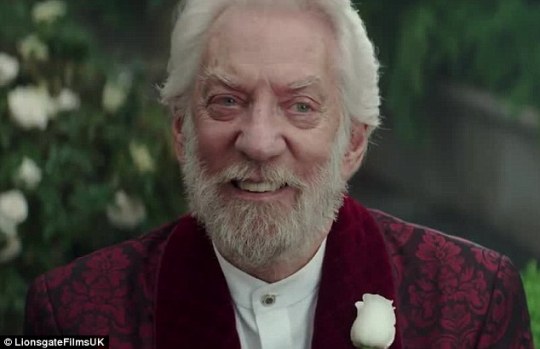
Here’s President Snow. He’s got a cute little granddaughter, he sends kiddies to kill each other Battle Royale-style every year, and he poisons all his political opponents. He’s also a master manipulator and has a penchant for white roses. They cover up the smell of the sores in his mouth from eating the poison too, to conceal his treachery.
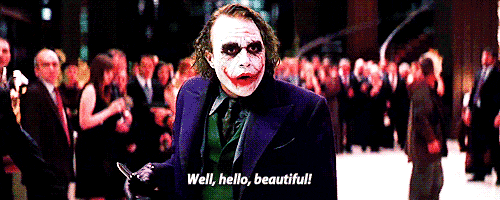
Heath Ledger as the Joker in Dark Knight (2008), who is, according to NYT (which I totally agree with), the best Joker. Now this is a villain done right, with many Voldemort-like traits. On a scale of one-to-ten, he’s absolutely terrifying. Why? He’s (unlike Voldemort in the movies) incredibly intelligent, shows young-Tom-Riddle-like skills for charm and manipulation, plays with humans like they’re his own personal psychology experiment (and to hell with the Institutional Review Board), and has one, single, very clear goal -- chaos. Like Voldemort, he wears an inhuman mask that’s not horrifying in its own right; but unlike Voldemort, the human is all there -- terrifying, real, and with a bottomless, obsessive desire to destroy. His disordered thinking is all out there for the audience to see. The Joker’s motivation is to enjoy himself; whereas Voldemort seems to lack drive. Why does he want to take over the world -- who knows, with Voldemort? The Joker wants to see it burn.
Let’s try to do the same with Lord Voldemort:
[SLIGHT FLASH WARNING]
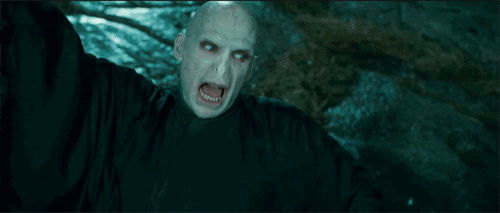
I had to go with this because Voldemort isn’t legitimately terrifying in many scenes. And yes, this unrefined anger somewhat speaks to Tom’s immaturity
By this point, seventy-one year old Tom Riddle is a hollowed-out shell of a human being. After decades of building his power, he was defeated by a one-year-old, and ended up slumming it as a spirit for a decade, got defeated again, was a shrivelled-up baby for a year, then finally got his body back.
He’s angry, okay! And Fiennes does a great job of portraying the sheer, destructive, unbridled rage of this character.
The body language. again, since his face is inhuman, this is super important. and Fiennes’ body language is great. Voldemort/Riddle commits to his actions. He is very emotionally-driven.
But yet, he doesn’t feel capable, in the way that the Joker or President Snow do. Yeah, we know anecdotally that he’s incredibly evil, sadistic, and second only to Dumbledore in terms of power, but he loses to a baby, and then that same baby as a teenager. So, we really could have done with seeing Voldemort’s power, cruelty, and evil firsthand a lot more often.
Voldemort is not well-characterized. I don’t understand his motives, and the ones that I do understand are not compelling.
Not to die? Well, he’s already made several Horcruxes. Why not sit back and relax? Why start a war and risk himself?
JKR said that Voldemort’s great desire was to become all-powerful and eternal. But that’s... boring! It does little to tell us about Voldemort, other than that he’s a villain and a wannabe dictator.
Furthermore, the charm, manipulation, and cunning that are hallmarks of younger Tom Riddle’s personality are gone.
Is Voldemort (to return to Jungian terms) all shadow? An empty creature of simple creation and destruction, perhaps? We’ll discuss this further down...

And this isn’t a problem of having a fantastical world with magic and the like. Grindelwald’s quiet, self-possessed, almost coy “So you think you can hold me?” was infinitely scarier than anything that has ever come out of Voldemort’s mouth. It was chilling.

OOTP is my favorite book, and the Ministry sequence is one of my favourite in the films.
This scene where he psyches out Harry, talking so quietly that he could just be a little voice inside his head (and again, during the possession scene)? Absolute perfection.
Why? Because this showcases what’s truly scary about him. Voldemort can get into your head. He can make you do things. And perhaps, if we had seen that more often, we’d understand how scary he is.
I wish this had been his grand entrance, and not whatever that scene in GOF was. Somehow, him screeching “I WANT TO SEE THE LIGHT LEAVE YOUR EYES!” is not menacing. At all.
But, I can’t help but think how much greater the emotional affect would be if he had more human features (think the burned-and-blurred, waxy features from Dumbledore’s memory).
Just imagine these scenes if Voldemort looked human, and spoke as quietly as he did in this one.
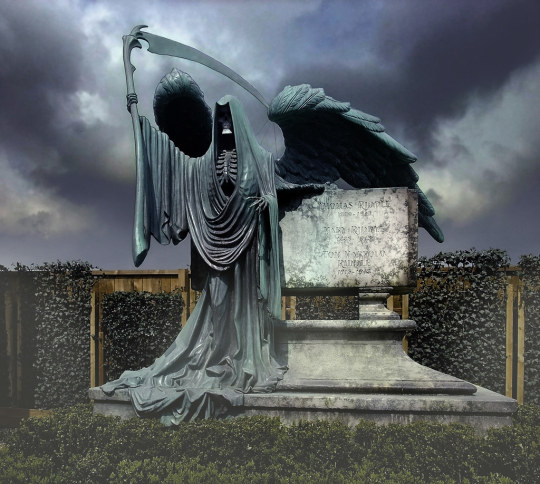
Because of the reason that I have little to go on in terms of characterization that I haven’t already covered, we’ll discuss the myth and legend of Lord Voldemort.
I can’t decide if the statue in the films is supposed to be the Angel of Death or the Grim Reaper. He has a skeleton and carries a scythe, but he also has wings. There are so many different interpretations, attitudes towards, and personifications of Death across the world that I don’t want to draw any one conclusion. But I must wonder if Lord Voldemort, with his yew-and-phoenix wand (which carries heavy symbolism of immortality and rebirth) and almost deified figure is meant to be a personification of Death himself? His name, Lord Voldemort, is a shade close to Lord Death.
For years, it has stumped me that wizards and witches are afraid to utter Voldemort’s name, especially since we only see the Taboo in the middle of the last book. It didn’t make sense just based on fear; in the real world, we don’t circumvent Hitler’s name, for example.
Perhaps this may have been obvious to others, but it wasn’t to me.
Here’s a counterargument to myself; why Voldemort shouldn’t look human.
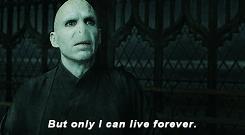
Voldemort, in the Wizarding World, is seen as a literal deity.
I promised to attempt to answer this question in Part 3:
And so, I can’t help but wonder if the opposite is true… if Tom Riddle creates Horcruxes, would that grant him additional magic powers?
In Part 3, I likened Tom Riddle to a sorcerer in Russian folklore, Koschei the Deathless, also famous for sequestering his soul in objects. This source suggests that Koschei was considered not an ordinary magician, but a representative of the ‘other’ world, the world of death.
So, what if... creating Horcruxes makes you... more than human? Now, I could definitely see god-like status being appealing to sixteen-year-old Tom Riddle. Perhaps, even appealing enough to kill for. Now, his proclivity for Avada Kedavra makes sense. We know it’s an incredibly sinister spell, but at the same time, it’s a very humane way to kill. Why might it be so horrifying?
Here’s a weird theory.
To the best of my knowledge, no one but Voldemort is seen using the Killing Curse more than once or twice.
Perhaps, ordinary mortals can only cast Avada Kedavra a few times, but Tom, having split his soul and having become in some way a non-human instrument of Death, can cast it however many times as he likes, and that is part of what serves to make him so terrifying.
This makes the idea of Voldemort tossing around Avada Kedavras actually incredibly terrifying, if you take into account what that might mean.
The collective cultural fear of speaking Voldemort’s name supports this theory.
Take the chthonic (underworld) deities of Greek mythology; most notably, Hades and Persephone, the king and queen of the underworld.
Hades, the god of the dead, was feared.
So feared that the word ‘Hades’ (”the unseen one”) was so frightening, that people came up with all sorts of euphemisms to circumvent actually saying it and he was rarely even depicted in art. For example, they would refer to him as Pluto (”the rich one”), Clymenus ("notorious"), Polydegmon ("who receives many"), and perhaps Eubuleus ("good counsel" or "well-intentioned"), amongst many other names.
However, he was not seen as evil; just stern, cruel, and fair. Like most Greek gods, he had an associated cult (the Death Eaters, anyone?)
Another interesting connection between Hades and Voldemort is that Hades was associated with snakes.
Persephone (suggested to have a pre-Greek origin and probably pre-dates Hades), who was also a vegetation/fertility/spring goddess, similarly, was referred to as Despoina (”the mistress”), Kore (”the maiden”), etc, because as the terrible Queen of the Dead, it was considered unsafe to speak her name aloud. In mythology and literature, she is sometimes referred to as ‘dread Persephone.’
--Just like how Lord Voldemort is referred to as The Dark Lord, He-Who-Must-Not-Be-Named, You-Know-Who... (and if you’re Dumbledore, ‘Tom’.)
Her central myth served as the context for the secret rites of regeneration at Eleusis (which was basically a mystery cult devoted to her and her mother, Demeter), which promised immortality to initiates.
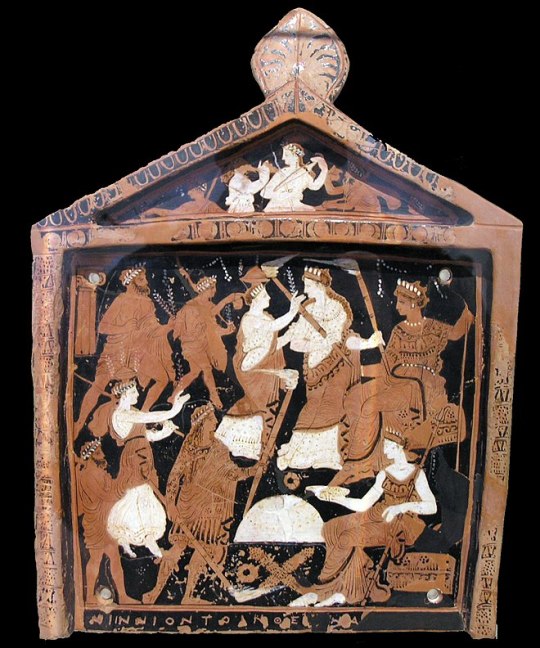
We don’t know for certain what exactly went on, because, mystery cult -- the members were sworn to secrecy -- but it revolved around immortality and rebirth and possibly psychoactive drugs.
Perhaps ironically, in comparison to the Death Eaters, anyone could join, as long as they could speak Greek and had never committed murder.
And that concludes my assessment!
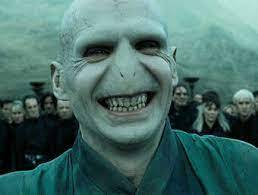
#tom riddle#the many faces of#tom marvolo riddle#character analysis#lord voldemort#character study#tw: murder#the body horror was 1/10#don't make your character design hilarious if you want him to be scary#i'm not saying voldemort is a vegetation deity#but i'm not-not saying it either
53 notes
·
View notes
Note
You mentioned rewriting that one analysis post on Tommy’s revival stream and I’d really look forward to it! I never got to read the full og post and that’s the only place I saw these takes. Especially the one about the afterlife being too depressing. It’s not even just about Tommy, the implication that even if every character is safe and happy by the end, this is their inevitable fate is messed up. It’s not “a neat subversion” it’s just depressing and doesn’t add anything.
Hey, anon!
I sorta decided to not rewrite it? I feel a bit differently about the essay in the end, although I still believe in most of my points. I’m also just not nearly as passionate about it as I was when I wrote it (I finished it in a single sitting, which was... interesting.) However, yes, the afterlife stuff still bothers me just the same, as well as the odd changes to Wilbur’s characterization... post mortem.
But—just for you, anon—here’s the entire meta-analysis essay anyway, with some minor edits to the stuff I don’t agree with anymore!
My Many Narrative Issues with Tommyinnit’s Revival Stream
I want to preface this by saying that I dearly love the Dream SMP and understand it isn’t exactly comparable to other mediums like TV and film. With this being the case, most criticism against it is generally in bad faith or strange in foundation. Complaining about streamers for bad acting is the best example that comes to mind.
These aren’t professional actors. Most have never acted in this sort of setting, or even at all. Quite a few have admitted to never roleplaying before. Which is why it’s warranted to praise Tommy, Dream, Wilbur, Ranboo, and others when they deliver stellar performances. The same applies to criticism of music choice, dialogue delivery, focus, tone, etc.
However, one such category I cannot overlook is in regards to its writing. The writing of a story is its entire foundation. It encompasses many things—conflict choice, character development, themes, and morals. The author creates the blueprints for the architect, who then expresses the story with light, sound, color, pacing, and music. It is in its execution that we see if this connection is made or broken.
The reason I find poor writing mostly inexcusable is because it is one of the most available skills to practice and perfect. I don’t mean to say that it’s easy, I mean to say it is something anyone can attempt to cultivate. Whether they do it well or not depends on their methods and experience. If anyone can self-publish a novel and be criticized online for its quality—and even compared to the works of Mark Twain—then I find critiquing the writing of the Dream SMP to be perfectly reasonable.
However, since the Dream SMP script is a set of loose bullet points, tearing apart dialogue and scene continuity—which is nearly all improv—is rather useless. It doesn’t exactly have a clear focus as the plot plays out. The characters talk in circles until they hit the story beat required, and then they move onto the next. Thus, when criticizing it, one should generally critique grand events and narrative-specific shifts, more so than small-scale character interactions.
Which brings me to my main point: The broad narrative choices taken in Tommyinnit’s most recent livestream, ‘Am I dead?’ may lead to disastrous writing pitfalls in the future.
I’ll be outlining each of my issues below, in hopes of creating a better understanding as to why I feel this way.
This might become quite lengthy, so please bear with me for a bit.
Tommy’s relationship to Wilbur has flipped. This change is jarring and seems out of character.
Tommy and Wilbur’s friendship is rather complicated. While Wilbur does care for Tommy immensely, especially during the L’Manburg Revolution and the Election Arc, his mental spiral during exile put a massive strain on their relationship as a whole. Wilbur brushed off Tommy’s feelings and wants, while clinging to him and pushing everyone else away. He was simultaneously distant and suffocating.
Tommy, on the other hand, has an unclear view of his mentor. Since the beginning, and even long after Wilbur’s death, Tommy held him in especially high regard. He saw him as a brother-figure and a wise leader. He followed what he said and did everything he could to impress him. Yet, Wilbur still hurt him while the two were together in exile.
When speaking of him, Tommy tends to flip infrequently between remembering Wilbur the way he was before his mental decline and thinking of him as a monster. Both of these images conflict with each other, but they weren’t nearly as extreme as what Tommy described Wilbur as when he was revived from death. The fear Tommy displays to Wilbur is beyond intense—it feels as if the audience may have missed a month’s worth of character development.
This can make sense, especially since it was stated that he’d spent what felt like two months in the void. However, this shift is still deeply at odds with Tommy’s previous impressions of Wilbur, which is both disheartening and confusing. The fact that Tommy would agree to stay with Dream—his abuser and murderer—over his past mentor is simply head-reeling. It paints a very different picture of Wilbur’s character, somewhat conforming to the fandom’s ableist impression of him—the idea that Wilbur is insane and irredeemable, and always will be.
It also ignores Dream being the driving factor in Wilbur’s downfall, as well as the double-bind deal with Dream which required him to push the button, no matter the outcome. Others have pointed out that Tommy may be lying to get Dream to bring Wilbur back, and there’s compelling evidence for that. For one, Tommy and Wilbur’s conversation seemed uncomfortable, but it was certainly nothing like Tommy implied. (Unless this fear comes from something Wilbur said off-screen.)
Tommy also begged Dream to not bring him back multiple times over, which he should know would make Dream even more tempted to, simply because he likes seeing Tommy in pain. Tommy is also a known unreliable narrator. He may be making Wilbur out to be worse than he is by accident (even still, I’d argue this is a bit of a stretch.)
However, there are some issues with this theory. Tommy offered himself as payment to Dream if he chose to let Wilbur rest. This is a deal Tommy knows Dream is extremely unlikely to refuse. Tommy is what Dream has coveted all this time. If Tommy genuinely wanted Wilbur back, he would not offer this. This sort of compromise is Tommy’s greatest nightmare—something he would only do in response to his friends being threatened or his home being destroyed.
To add, Tommy is not great at lying. Unless he was taught by Wilbur for those two months* in the afterlife, there’s no chance Tommy would be this good at it. Thirdly, Tommy is terrible under pressure. He uses humor to cope. When he can’t, he cries and shouts and spills his heart out. While cornered, Tommy will tell the truth about anything, especially if Dream casually debates killing him again, just for fun.
For now, it’s too early to tell how the relationship shift will play out. In the grand scheme of things, this issue is rather minor.
Season three’s writing is needlessly bleak. The portrayal of the afterlife is a nightmare. There is no rest, not even in death.
I adore the Dream SMP storyline in its entirety. I believe the first season is fantastic, and while the second season has some narrative clarity issues, I enjoyed it just as much. Although, I would argue season one had a more concrete understanding of its Hope-Conflict balance.
To briefly explain, the Hope in stories are its ‘highs’ and good moments. These appear when a character the audience is rooting for is narratively rewarded. They happen during character building in the text—it’s the downtime and peace that allows for connection and relatability. It’s a moment for the viewer to breathe easy.
The other half is Conflict, an obstacle in the story that gets in the way of the main characters’ goals, beliefs, and motives. These are the ‘lows.’ They give the narrative focus and weight. They make the highs feel even higher. They establish consequences and force the characters in the story to change in order to adapt and overcome them.
I bring up the Hope-Conflict balance because a traditional hero’s journey would have an appropriate amount of both. Their highs and lows are generally equalized, as the name suggests. However, this balance has been awkwardly skewed in the latter half of season two and in the current plot of season three. To clarify, it is perfectly reasonable, and even common, for some stories to tip the scale more to one side.
But a common mistake for amateur writers is to create their stories as either hopelessly dark to cause the audience continuous distress for the sake of distress, or to keep everything entirely conflict-free for most of the plot. What do these both have in common? They each make the story boring and predictable.
Season three has taken this concept and thrown a monstrously heavy weight onto the Conflict side and flipped the scale so hard it has crashed through the ceiling. The viewers are hardly given time to find any joy in Tommy’s character, as he’s thrown into yet another abusive situation, just barely after his first narrative reward. The world is painted as relentlessly violent and traumatic.
Every person Tommy meets is morally grey, unhinged, or out to hurt him. Everything most of the characters love is taken from them by those in positions of power. Ranboo cannot even grieve properly because it scars his face. Puffy, Sam, Ranboo, and Tubbo all blame themselves for what happened to Tommy.
The audience watches lore stream after lore stream with the same depressing tone (with the exception of Tubbo’s, but I assume that’s unintentional.) Tommy is revived after being brutally beaten to death by his abuser, surrounded by all of his greatest fears. The afterlife is revealed to be akin to inescapable torture. It’s a colorless void that wraps the individual like fabric.
Time moves thirty times slower within. There’s nothing—nothing but the voices of others who’ve passed on before him. Dying in a world already devoid of happiness takes the characters to a place worse than hell. When a narrative delivers unfair suffering to the entire cast without a moment of joy to speak of, the story will feel simultaneously overwhelming and pointless.
Why watch characters suffer when there’s no light at the end of the tunnel? What happiness could they strive for when we know they’ll never get to keep it? How can I be satisfied with a good ending, if I know that an afterlife too terrible to name is what awaits them, truly, at the end of their story? Death isn’t even a white void that offers rest—it is eternal torment.
Obviously, it isn’t a good message to send by making the afterlife seem like a quiet, perfect place or an escape from pain. But making it an unspeakable anguish which awaits, assumedly, every character who will die in the future? I deeply hope Tommy was only being an extremely unreliable narrator.
More likely, I hope the place Tommy was taken to was a Limbo of sorts, not an end-all-be-all destination for everyone.
The degree of Tommy’s narrative punishment continues to escalate, to an almost absurd degree.
Tommy is one of the most tragic characters to exist in the storyline. He was sent into war at a young age and experienced two traumatic events during it. He was exiled by the newly elected leader and witnessed his mentor Wilbur spiral and break down with paranoia. Tubbo is executed publicly in front of him. When expressing rightful anger at the person who murdered him, he’s beaten nearly to death and never receives an apology.
Schlatt dies right in front of Tommy, after his initial refusal to hurt the ex-president. His brother-figure and mentor is killed in assisted suicide on the same day his nation is blown up. His best friend exiles him from his home for the second time. He routinely self-sacrifices to protect his country and those who live there. His most treasured possessions were taken from him and he was called selfish for trying to retrieve them (although his methods were self-destructive and volatile.)
He was pushed to the brink of suicide after being relentlessly abused and isolated in his exile. He was horrified when he thought he was responsible for drowning Fundy. After making an objectively good decision to stand by his old friends and change for the better, his country was obliterated by the man he once idolized, his father-figure, and his abuser.
He was left scattered and without purpose for many days. Then he fights against Dream and loses, while also reliving his trauma. He watches Tubbo almost die at the hands of someone he once thought was his friend. He doesn’t tell a single person about what happened to him in exile. The day he tries to sever his connection to Dream and heal, he’s trapped with him for a week, surrounded by everything that terrifies him.
He threatens to kill himself, speaking about his own life as if it were an object—something to hold over Dream’s head. He blames himself for everything bad that’s ever happened to L’Manburg and his friends—internalizing a mentality as a scapegoat for everyone around him. He is forced into the role of ‘hero’ despite the title being unfair and distressing to him.
As if that weren’t enough, he’s then beaten to death by his abuser and spends what feels like two months in an afterlife that is worse than hell. When he returns, his senses are excessively heightened. Dream can cause him excruciating pain, just by pinching him. He can send Tommy into an instant panic attack, just by raising his voice.
The punishment Tommy’s character receives is a thousand times worse than everyone he has ever met, or ever will meet. And it shows no signs of stopping, as Dream now has control over Tommy’s very mortality. Tommy now fears the slightest damage and feels as if he’s losing his best friend all over again. He is also forced into a position where he has to kill Dream out of necessity, to protect everyone he cares about.
Characters need fitting punishments in relation to their actions. Not always, but in order to be satisfying? Yes, they do. It is preferred that a main character deal with unfair situations and difficult conflicts, but this is borderline torture p*rn. Putting Tommy in these distressing and abusive situations on repeat and punishing him for doing objectively moral or healthy things is exhausting to watch.
To quickly add, I find the general insinuation of Tommy going to hell distasteful, especially considering the contents of his storyline. I know this may be hard to believe, but Tommy is one of the most moral characters in the plot, besides Puffy and Ghostbur. He’s also the only character, followed by Ranboo, to recognize that they can be wrong and make mistakes. He changed himself in order to heal and be a better person. He was in the process of paying people back for the things he’d stolen.
He’s learned to be hard-working and less violent through the guidance of Sam. He has apologized to everyone he’s ever hurt (with the exception of Jack Manifold, because that man is allergic to communication.) He puts himself in harm's way to protect others. He doesn’t set out to purposely hurt anyone. He goes out of his way to make connections with people and maintain them, even if others don’t reciprocate.
He’s hopelessly optimistic, despite his outwardly bitter façade. He loved so much and put meaning into the smallest things. The thought that a person like him—a suicide and abuse survivor—would go to hell after being beaten to death by the man who took everything from him; it makes me sick to my stomach.
The only thing more morbid than Tommy’s afterlife being different than everyone else’s, is the concept that everyone will end up in this same eternal torture, no matter what they do. Take your pick: Tommy is sentenced to anguish until the end of time for no reason, or everyone will receive the same disturbing ending, regardless of their actions.
The narrative weight of Ranboo’s character is potentially out the window.
For the past few months, I’ve watched all of Ranboo’s lore streams faithfully, curious to see what role he would play in the future. His ‘hallucinations’ of Dream seemed to be sowing the seeds for a plot that has Ranboo taking the fall for every single insidious thing Dream has done. It would also be a tragic parallel to Tommy’s trial.
Ranboo being convinced he was the one who blew up the community house, when Dream himself admitted to doing it, was one of the bigger indicators for me. This is just one of many other unexplained occurrences. Dream seemed to be making an effort to trigger and control Ranboo, especially after Sapnap’s prison visit. It appeared, from the way he went about this, that Dream had some grand use for Ranboo as part of his plan to be freed from Pandora’s Vault.
However, after Tommy’s stream, the way Dream explains himself makes it seem like there was no plan besides seeing if the book worked on people. And if he didn’t after all, then what was Ranboo for? Was Ranboo unimportant? Was Ranboo just some weirdo who happened to phase out when seeing smiley faces and imagined conversations that may or may not have happened?
I bring this up more as a worry, and much less so as an active problem in the narrative. They haven’t actually thrown Ranboo to the way-side or written themselves into a corner yet. In future streams, this could very easily be explained away or developed as more information is revealed.
Only time will tell.
The potential for Wilbur’s future development and importance to the plot is unfeasible.
I feel as if I am the only person on earth who doesn’t want Wilbur Soot or Schlatt revived. There are many reasons for this, but one of them is not a dislike for these characters. I especially adore Wilbur, as he’s one of my all-time favorites. I don’t want either of them resurrected because their stories have already been told. They each had a fitting conclusion that ended their involvement perfectly.
Bringing Wilbur back would especially cheapen the impact of the War of the 16th. It’s the end of a man who was brought to the absolute edge and out of desperation, shame, and self-hatred, he destroyed himself alongside his creation. Bringing him back would leave the climax of the previous story hollow. My biggest issue, however, is that a lack of story importance would likely follow his return.
The only real impact I’d like to see is through a healing arc with Tommy, an apology to Fundy, or a confrontation with Phil/Niki. But that’s really all the potential I can realistically see. While I don’t doubt Wilbur as an agent of chaos, able to create plot out of thin air; what is he going to do now? His country is gone, his friends and family are scattered about, and his mission from the 16th is already accomplished.
What is a well-educated, charismatic politician supposed to do in a world already broken and without nations? Read poetry to himself and cry evilly? However, this is working off the assumption that Wilbur would be returning as his old self.
If Wilbur is resurrected as a ‘villain’ of sorts, then what? He’s not good at fighting in the slightest. He would have no materials. There are no real allies he can make, other than the arctic group. On top of that, there are already more than enough villains to last a lifetime.
We don’t need any more, I promise. Quackity seems to already be shaping up as another antagonist, alongside Sam’s slip into darker and darker shades of moral ambiguity. We also have Philza and Techno, which are already overkill. But then we have Dream who, despite being in a prison, has the ability of selective revival. This is mercilessly overpowered, especially if he makes many allies. The dude could just bring his dead friends back so they can keep fighting forever.
Then there’s Jack Manifold and the Crimson followers; Antfrost, Bad, and Punz. That’s not even including characters who are refusing to get involved. How are Tommy, Tubbo, and Puffy expected to do literally anything to fight back?
Dream’s experiment on Tommy implies he had no backup plan to begin with. This makes his character seem both short-sighted and foolish.
When Tommy woke up after being brought back to life, Dream sounded surprised that the revival worked at all. This instantly shatters the perception that Dream was highly intelligent and thought ahead. With just a few lines of dialogue, it’s implied that Dream killed Tommy, unsure of if the resurrection would even be possible on humans.
Which, to risk something that important, seems unbelievably stupid. Dream needs Tommy, from his perspective. Tommy is his ‘toy,’ the one who makes everything fun. If he lost him and couldn’t get him back, what then? Oh well, everything Dream was doing was all for nothing, I guess.
Why not attempt this experiment on literally anyone else first? Like Sapnap or Bad or, hell, even Ranboo. I suppose it could be that, as soon as Dream got the book, he experimented with it after the 16th. This appears to be insinuated with Friend and Hendry’s revival, although this is uncertain. But even then, he was still unsure of the book’s effect on a human being.
Also, this means, hypothetically, Dream’s entire plan of escape hinged on the experiment working, to begin with, and also on bringing back Wilbur if it somehow did. I find this even more ridiculous. Why Wilbur? That man couldn’t find his way out of a paper bag, let alone get through the traps in Pandora’s Vault. Even if he is intelligent after years* in the afterlife, that’s also a strange assumption.
How do people learn things in the void? Where do they even get this knowledge? I’d honestly argue Techno is a far more competent choice than Wilbur. And even if Dream did bring him back and tell him he owed him his life, what’s to stop Wilbur from just killing him permanently? Or killing himself, continuously?
No way would Wilbur want to be controlled by anyone, ever. The dude would sooner fuck off into the mountains and become a nomad than help a neon green bodysuit cosplay as Light Yagami.
Dream’s discussion about Sam implies that he wasn't playing any part in Dream’s plan, making Sam appear entirely incompetent and neglectful of Tommy.
Dream talked about Sam in a way that seems detached and unaffiliated. He also mentioned him being broken up about Tommy’s fate and not being aware he’s still alive. Dream not being partnered with, or not using Sam in his plan leaves many plot holes. I’ll go through each one. The initial incident was an explosion, coming from the roof of Pandora’s Vault. This did not affect the Redstone mechanism for the doors or dispensers.
Meaning, Sam could’ve had Tommy leave the way that was expected for visitors after he investigated and found no issues. This likely couldn’t have been done in less than a day, but it would be better than an entire week. If Tommy was required to stay for longer, due to protocol, he could’ve gotten Tommy out and then placed him in one of the minor cells for the remainder of the time.
Also, no one else lost a canon life for leaving via the splash potion of harming and returning outside the maximum-security cell; why would Tommy? To add, Sam being uninvolved means that the explosion could have only been caused by Ranboo or Foolish. That, or it was placed long before and timed for the moment Tommy entered the main cell. (I’m going to ignore how ludicrous it is that someone would know the exact time Tommy would’ve entered the room with Dream.)
If Ranboo was the person behind the detonation, this implies he was necessary for Dream to kill Tommy to test the book. But that makes it even stranger. If this was Dream’s goal all along, why not kill Tommy the instant he was trapped with him? It makes no sense for him to wait so long.
Sam is also directly at fault for not letting Tommy out, even after the week was up. There was no reason not to. He already knew there were no issues with the prison at that point. Although, to be fair to Sam, his character may have been paranoid and checking everything more than necessary, just in case. But this still isn’t a good excuse for him ignoring protocol in this one instance, and yet, not in any of the others.
All of these plot holes or inconsistencies would be removed if it was revealed that Dream was blackmailing Sam in some way, or Sam had been working with him since the get-go. That Sam was the person who set off the explosion in the first place to trap Tommy inside. It would also explain Sam’s refusal to let Tommy out and by keeping him in there for longer than necessary.
This can also coexist with Sam’s attachment and care for Tommy. He probably wasn’t told about Dream’s plan to test the book and genuinely believed Dream wouldn’t hurt him. On top of that, Dream is known to be a pathological liar, so his statements about Ranboo and Sam could be entire fabrications.
Who knows?
The Book of Revival invalidates death entirely. The narrative now lacks both tension and consequence.
Another way the Dream SMP differs from other storytelling media is in the way it goes about its character deaths. In a TV show, for example, there will be characters who die just because, or when it’s important to the plot. However, it seems as if the Dream SMP is hesitant to commit to killing its characters. And there are many reasons for that.
The most important one being, killing someone’s character excludes them from the story and some of their livelihoods depend on them regularly streaming on the server. There is also the issue of the cast becoming extremely sparse if characters keep dying. Typically, in stories, when you kill a character, you should introduce another.
This keeps the cast from dwindling as the storyline goes on. This means the writers would have to find new streamers to join, who will develop their own characters and relationships with the plot’s continued momentum. This can be stressful and daunting to those who may be newly added in the future.
Keeping this in mind, the Book of Revival is annoying from a writer’s perspective. When death is no longer an issue for a story hinged on its characters’ mortality, then what do you have as a consequence anymore? We’ve explored every kind under the sun; from abuse, to betrayal, to loss, to destruction.
In stories, traditionally, death is a finality. It’s a conclusion. Whether it’s good or not depends on the character’s actions, its build-up, and the event’s execution. Without this lingering sense of danger, tension evaporates from the story.
Why should I care if Tommy loses in a fight to someone, if he’ll just come back a day later? Why should I care about what happened to Wilbur, if he just returns as if nothing happened? The answer is simple: I won’t. I will no longer care if Tubbo or Ranboo or Sam die in the story, because the idea of revival even being a possible outcome leaves me unenthused and uncaring.
The Dream SMP likes to flirt with death. It teases the demise of its main characters many, many times. More so Tommy’s than anyone else’s. Wilbur’s failed resurrection, which had unforeseen and unfortunate outcomes, is now strange in comparison to Tommy’s, which happened without a hitch.
To be fair, we actually don’t see how many attempts it took. But here’s the problem; Dream could do it without the book being physically present. He’s trapped in a prison with nothing on him, meaning he doesn’t need any materials either. It’s also implied he could do this as many times as he feels, for anyone he wants. This would be exceedingly overpowered, if not for one thing—Dream himself is mortal (at least, I fucking hope he’s mortal.)
If someone kills him one last time, that knowledge is gone forever. And I’m glad they’ve established at least some way for Tommy to win. Because at this point, I was losing faith.
There is also the bare minimum establishment that Dream can refuse to bring back those he doesn’t care for. He can also use it as a shield, holding this power over other people. If Dream is gone, death is permanent. But isn’t that how death is supposed to be, anyway?
What a bleak premise—the afterlife is pure eternal torture while life is cheapened by a lack of consequences.
Conclusion
All this to say, I am cautiously optimistic for the future. I hope dearly that every single one of these can be disproven or developed in the coming livestreams. Obviously, there’s not enough information to really determine what the end result will be, or how everything will fall into place.
Every time I have theorized about the story, it has done something completely different and pleasantly surprised me. I want this trend to continue.
Surprise me again—I’ll be here to see where it goes.
#answered asks#long post#tommyinnit#dream smp meta#dream smp#dsmp#dsmp analysis#this is slightly outdated still but whatever#hope this was helpful anon#tw abuse#tw suicide
34 notes
·
View notes
Text
Clarice 1x09 Review
Right I’m getting the cons out of the way first.
I fucking hate this team. I really do. They could all die in a shower of bullets at the end of this season and I won’t even bat an eye. After writing this I’m going to wash my eyes out with some Science Husbands from The Show That Must Not Be Named because holy shit, this crew is so goddamn annoying!
Krendler should be Hudlin and Hudlin should be Krendler. It’s as simple as that.
So Catherine wants to kill Bill’s mama... you know what would’ve been nice? If we had some build-up for that. Instead the show’s like “oh shit.. we forgot Catherine has a story.”
Right the last time I talked about Ardelia’s storyline, I put my foot in my mouth big time so I’ll just say I’m a bit wary about what they’re doing with the whole Clarice complaint. I hope it is the truth which is “Clarice got all the credit and Ardelia didn’t, and this has to change” and not make Clarice be Exhibit A of Racism in the FBI.
Now the pros, because the pros far outweighed the cons for me this episode.
Those moments when Catherine was having panics attacks... they were really well-done. In fact, Marnee Carpenter was fantastic in this episode.
Julia. Right, I’m a cis woman. I have never been through what Julia has been through, and I know I will never fully understand what it’s like to be treated like that. But I thought that speech she gave near the end of the episode was so heartbreaking but so well-done. In fact, I’d say it’s the best scene this show has done so far in being a follow-up to the Silence of the Lambs. I know that Bill wasn’t trans but the way he was portrayed in the novel and in the film left a sour taste, and that sour taste has really never been addressed in this franchise until now. 30 years after the film. I think that having a character who is a transwoman played by a trans actress, who also wrote this speech, was a very smart move. Because judging by what I’ve read and seen, it looks like Jen Richards took the reaction of the portrayal of Buffalo Bill from the trans community back in the 90s (and it’s still going on today) and made it part of this episode, part of this story. The show had been skirting around this issue for so long, making Bill be this PTSD boogeyman, and now they’re finally addressing just how much hurt he caused in real-life. So the lines between reality and fiction were blurred in this episode (I have read the interview with Jen and yeah I think she put personal experience in this speech as well). Personally I thought that was very powerful. And after that deadnaming scene (I knew it was coming but holy shit) ...yeah I’m going to need to see Julia verbally kick Hudlin’s ass!
Julia’s plot and Catherine’s plot are reminding me what I wish this show was about from the start! I couldn’t care less about this conspiracy storyline, I want to know about the characters! This franchise is so successful because of the characters! We get glimpses of insight with Clarice and Catherine, but we’re not given enough time to learn anything new! When Ardelia was talking about her past a couple of episodes ago, that was great insight into why she is the way she is! And now there’s Julia who is the perfect character to bring us back to what this show promised us at the start - exploring what happened after the events of Silence of the Lambs! It seems like this show has forgotten this!
Okay there’s four episodes left. I’m at the point where I just want it all to wrap up and end. If it gets renewed, I’m not coming back, unless something REALLY big happens that hooks me. As of now? Highly doubt it.
8 notes
·
View notes